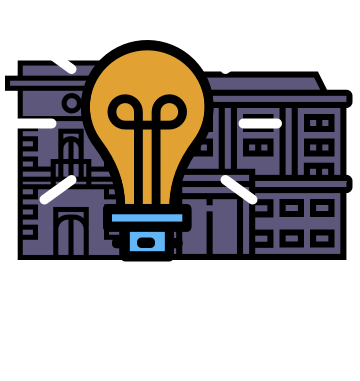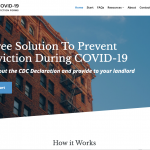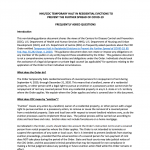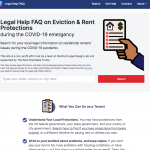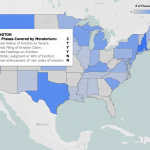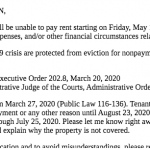Lawyers, legal navigators, and other legal professionals can help people facing eviction to resolve their problems & get to better long-term outcomes.
What are promising practices to scale up legal services — both among lawyers who can represent tenants, as well as community navigators and technology tools that can help scale up legal capability?
The basics of legal services for eviction prevention
Legal aid groups, courts, self-help centers, and pro bono groups have a variety of ways to help people struggling in the eviction legal system. Their programs, outreach, and efforts give ways to stop a lawsuit, or deal with it once it’s under way.
Eviction Diversion Programs and Prevention programs, that stop court actions against tenants with emergency funds, mediation, and securing housing for the tenants
- In Chicago: the Eviction Diversion Program
- In Kalamazoo: the 8th District Court Eviction Diversion Program
- In Grand Rapids: the Eviction Prevention Program pilot in the 61st District Court
- In Massachusetts, the HomeStart Eviction Prevention program
- In Phoenix: the Arizona Department of Housing’s Eviction Prevention Assistance, along with an article about its roll-out
- In Philadelphia: the Philadelphia Eviction Prevention Project, which also includes other services like a helpline for tenants, training workshops, a legal help website, and connections to legal services.
- In Connecticut: the Eviction and Foreclosure Prevention Program
- In Jacksonville, FL: the Emergency Assistance Program from the city’s Social Service Division
Legal Aid support & development
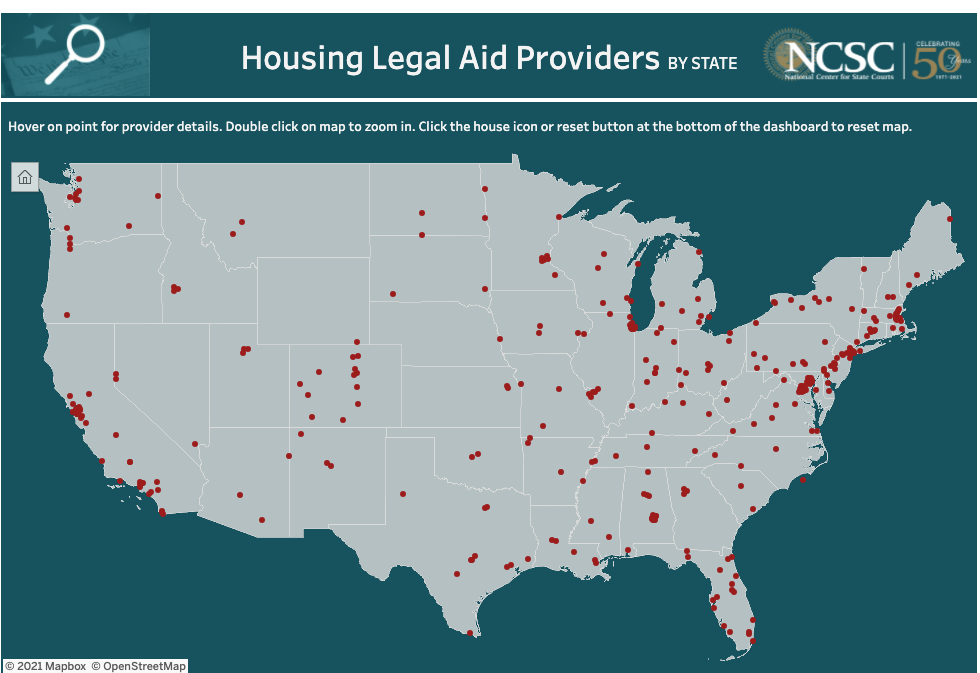
Every jurisdiction has its legal aid groups. To help them provide more services to at-risk tenants, work with them to amplify their current work.
Steps to improve support & impact of legal aid groups:
- Map out which groups offer Housing Law groups — inquire about their needs, their capacity, and how volunteers can sign up
- Coordinate Eviction Intake, so multiple groups can all have a single intake — and that they can share aggregate data about their cases and services
- Map out services provided — inquire if they are able to do the range of eviction defense, brief advice, and form assistance, and work on supplementing existing programs if there are gaps
- Volunteer training: See if the legal aid group has capacity to provide training to volunteers
- In-court clinics: Explore how they could be more present in court, through drop-in clinics, attendance at virtual hearings, or otherwise
- Funding for more staff and services: Increase their capacity to see more clients (full-representation or brief)
- Improved websites: Put more DIY and self-help resources on their website, so people know more about the process, resources to use, and how to use legal aid
Right to Counsel

Right to Counsel is a mandate — ideally with funding — that every tenant sued for eviction can apply for & receive a free full-representation lawyer.
This means everyone facing eviction has a free lawyer. Sometimes this is called Civil Gideon — providing the same right in the civil justice system as in the criminal one.
A Right to Counsel program, once it exists, then needs to be supported with user-centered program design and effective, data-driven coordination among providers. There should be a website, hotline, and referrals to ensure tenants know about this right – -and can easily, promptly use it.
Court-Based legal help
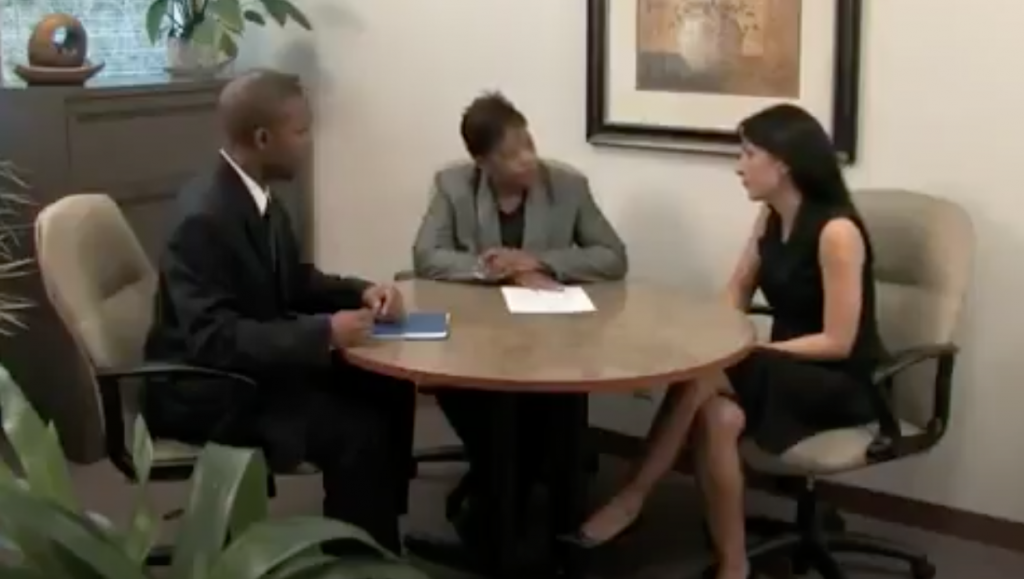
Court-based Self-Help Clinics, Legal Services, and Navigators can provide key legal help when people are coming to the courthouse for a hearing (or other kinds of help.
These legal help services at court can provide:
- Free lawyers that can represent a person at court, after consulting with them earlier that day, adn then helping them make a follow-up plan
- Brief advice clinics from lawyers that can help a person with 30 minutes or less consultations about choices, next steps, and strategies
- Mediation and settlement support from trained lawyers or mediators, that can help a person while negotiating with the other side
- Process navigation and document help, from lawyers, justice advocates, community navigators, or court self-help staff, to help the person with form-filling, understanding the process, and making sense of legalese
- Accompaniment through the process by a trained navigator, to support a person through the courthouse, in the hearing, and after by providing procedural support (not legal advice) and emotional support.
Some examples of in-court legal help
Housing Court Navigators in New York: non-lawyers who accompany tenants through the procedure https://www.nycourts.gov/courts/nyc/housing/rap_participating.shtml, with a research study of outcomes by the American Bar Foundation
Lawyer For the Day clinics in Massachusetts housing courts, with free lawyers available to people coming into housing hearings
In Milwaukee and Dane Counties, the Eviction Defense Project that is a court-based legal service for families in Milwaukee Counties, with brief legal services, negotiations, and in-court representation.
Collaborative Housing Courts
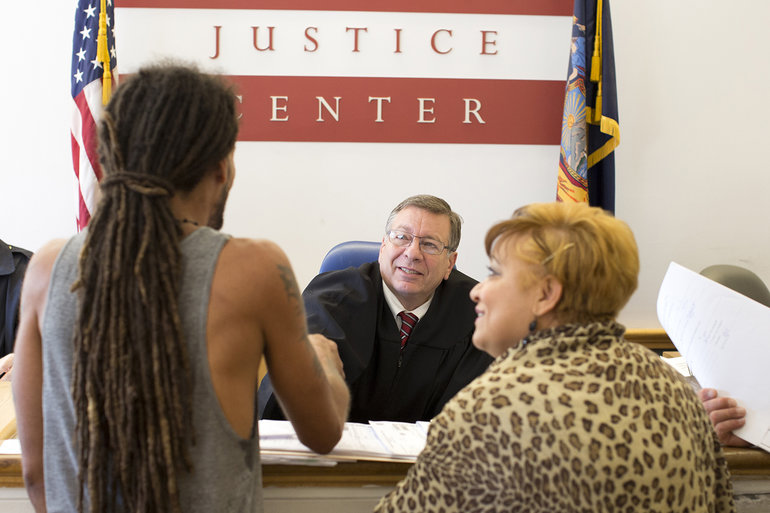
Collaborative housing courts transform how the rules, procedures, and experiences of a lawsuit’s meetings and trials go. Taking examples from other collaborative and problem-solving courts, these kinds of redesigned housing courts are focused on identifying services, supporting stable relationships, improving people’s outcomes, and finding mutually conducive resolutions to problems.
Some examples of collaborative housing court exist in Red Hook Community Justice Center in Brooklyn, NY (read its origin story), and the Harlem Community Justice Center
- Rochester, NY is considering a new housing court model, that would allow the court to make orders to landlord about habitability; allow tenants to represent themselves more easily; and have more court-supervised administrators following up to make sure necessary changes are made
Pro Bono Volunteers
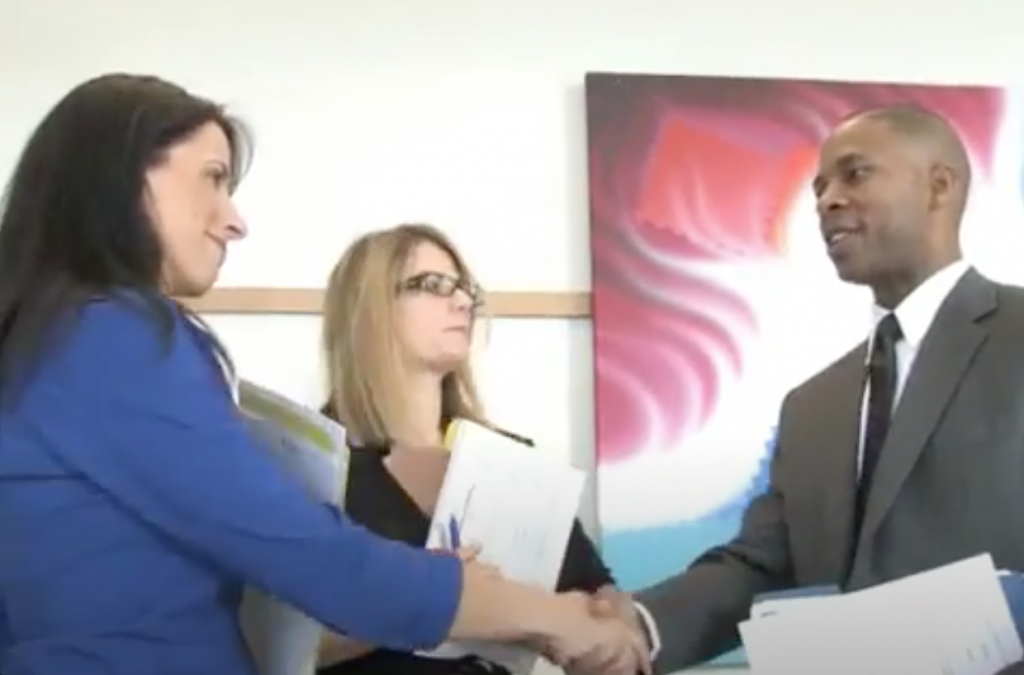
Pro Bono Mobilization can increase the supply of trained housing law lawyers + volunteers. In eviction prevention, pro bono lawyers can help with:
- Emergency rental assistance program (ERAP) navigation: Assisting people in filling out ERAP and following up with issues
- Eviction defense: Giving brief advice or full representation to people sued for eviction
- Writing letters to landlords: Helping tenants write an official letter, with the lawyers’ letterhead, in response to an eviction lawsuit, problems with harassment or intimidation, or bad living conditions
- Activating courts to provide eviction diversion: Calling, meeting with, and pressuring court officials to open up Eviction Diversion programs, staffing/running them, working on court rules changes
- Mediation and settlements: To allow for more agreements between landlords and tenants
If your organization needs help from pro bono attorneys, especially with ERAP, you can sign up to receive help at this form.
- Poverty Justice Solutions in New York City
- Massachusetts’ online training to volunteer in their Lawyer for the Day clinics
Legal technology help
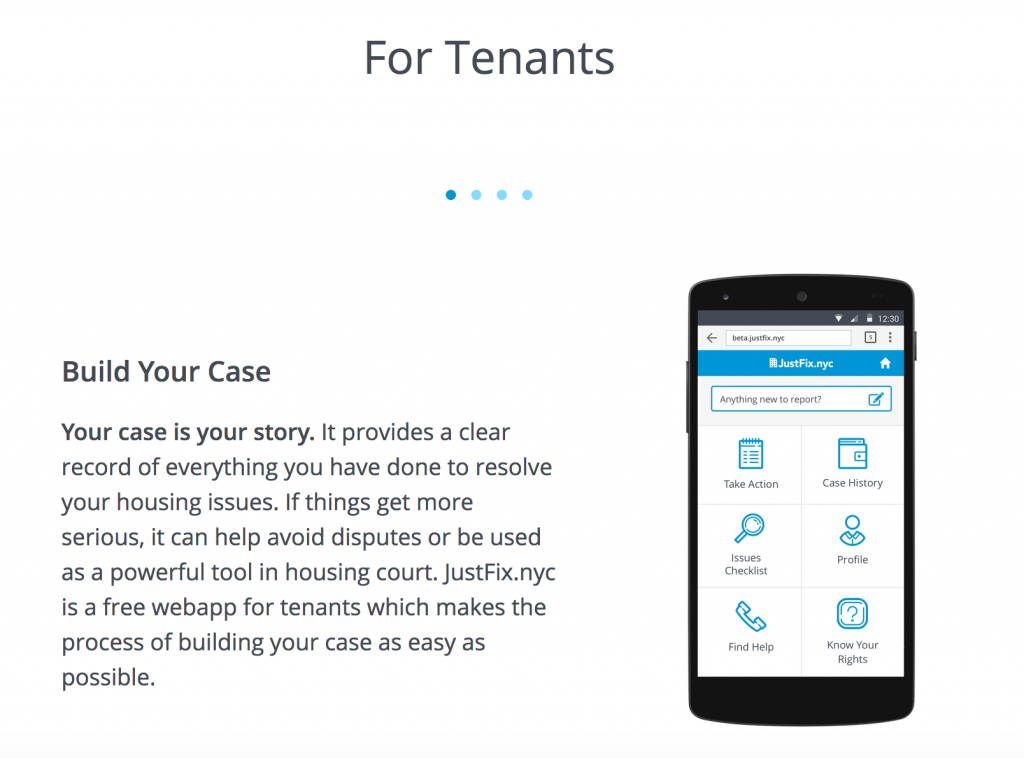
What legal technology can help tenants with their housing problems? What can renters use to document living conditions, gather evidence, and correspond with landlords?
Tech to correspond with navigators and lawyers
Text message hotlines, websites, and other tools can be used to let people easily reach out for help, get reminders, and get connect with a professional.
Tech to write legal letters and document problems
- JustFix.nyc tech tools for tenants, that provide people with the ability to record problems with their living conditions, write official letters to their landlord, prepare evidence for court hearings, and connect with other tenants who are dealing with similar issues/landlords
- Dear Landlord (Australia) and Hello Landlord (US) – for tenants to write formal legal letters about problems, and to create a trail of evidence that can be useful in future court actions
Tech to prepare court documents and strategies
Tech to help tenants (and advocates) prepare court filings, answers to eviction lawsuits, legal strategies on defenses to use, and scripts to use at hearings
- MADE self help for eviction in Boston, that lets tenants
- Arizona Eviction Self Help website (Pima County, Arizona), that walks tenants facing eviction through their possible defenses, options, and scripts they can use to communicate their issues
Tech to educate and navigate procedure
Tech to train tenants and landlords on their rights, and how to represent themselves in a legal proceeding
- Represent online simulation game for self-represented tenants (Northeastern University and local legal aid groups in New England), that prepares tenants for what to expect at housing court
- Rentervention chatbot (Chicago), that lets tenants chat with an interactive, pre-programmed system to learn their rights and legal options based on their scenario
Case studies of legal services to prevent evictions
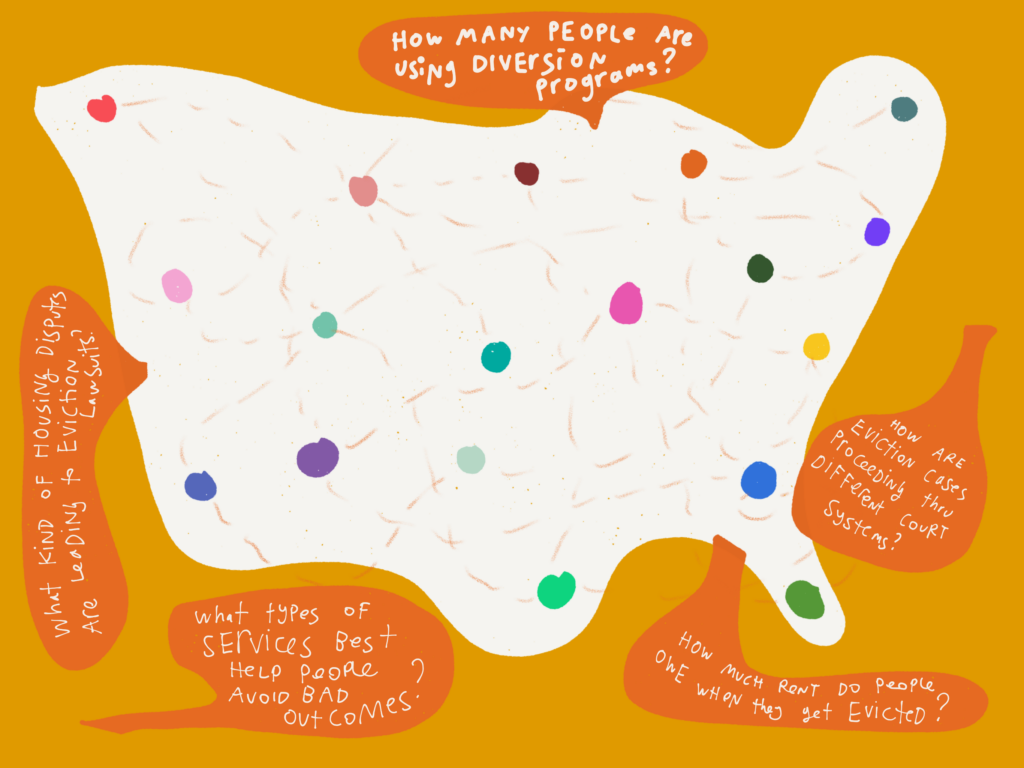
Eviction Diversion Data Strategy
Lessons from the Eviction Diversion Initiative for Coordinated Data & Outcomes Measurement Eviction diversion programs aim to prevent unnecessary displacement by connecting tenants and landlords with referrals, resources, and resolution options such as mediation. As these programs expand, evaluating their effectiveness is crucial for improving services, influencing policy, and ensuring they meet the needs of vulnerable communities. At a recent working group session of the Access to Justice Network/Self-Represented Litigation Network on research for access to justice, Neil Steinkamp of Stout led a discussion on strategies for measuring program impact, refining data collection, and translating insights into policy action. Neil has led the evaluation…

Introduction to Civil Diversion in courts
The National Center for State Courts has a hands-on, detailed webinar that guides courts & community partners on Civil Diversion programs. This covers eviction diversion programs, as well as similar programs for other case types (like foreclosure diversion). Here’s more from the National Center for State Courts description: A growing majority of civil cases in state courts fall under high-volume dockets such as landlord-tenant, mortgage foreclosure, and debt collection. These cases often involve self-represented parties and frequently result in default judgments. In response, many courts have developed innovative civil diversion programs. These programs offer alternative pathways for dispute…
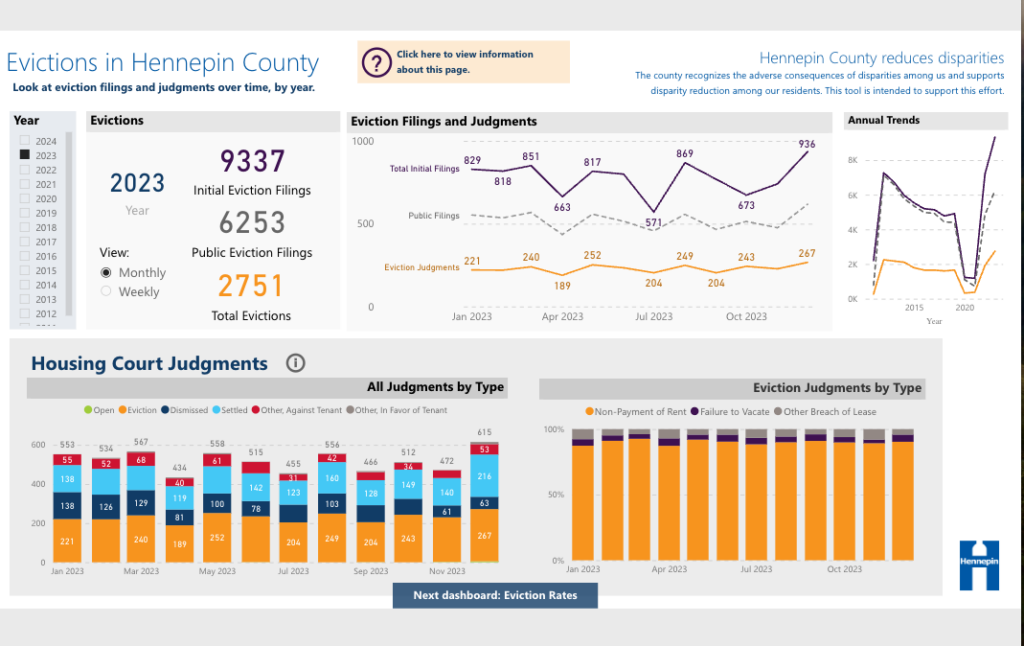
Local Eviction Data Trackers
Many more cities, counties, and states have begun to track eviction court data. The New America project on improving Eviction Data has collected together a national view on who is currently collection eviction case & outcome data, and how they’re being shared out. How many people are getting an eviction filed against them? Which people or companies are filing the most evictions? What happens to the eviction case – -how does it move forward, how is it resolved, and does it relate in an eviction judgment? How many of the court orders for eviction end up in forcible…
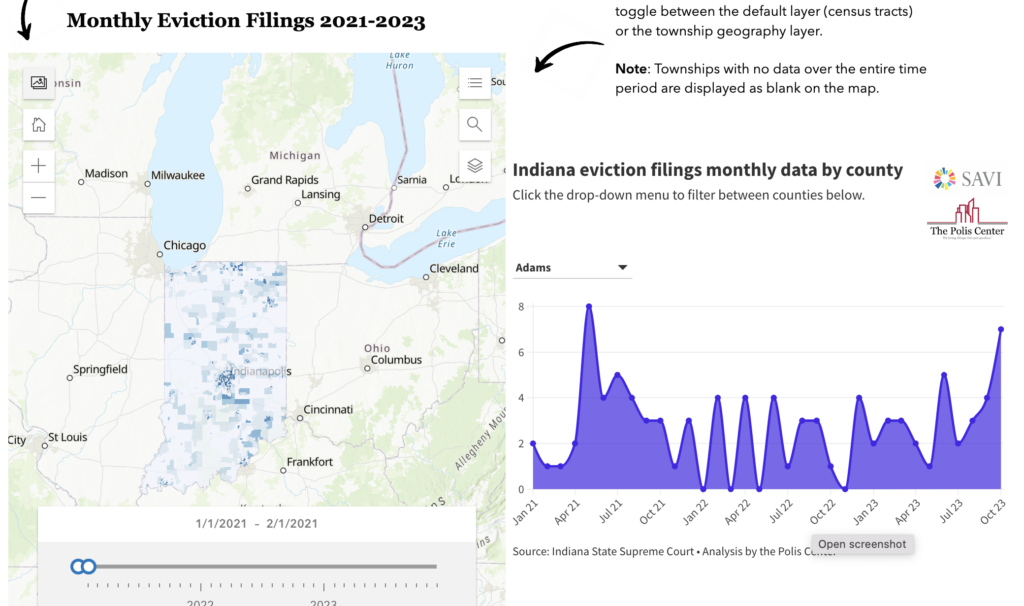
Indiana Evictions Dashboard
Indiana courts have made data about eviction filings available, and this interactive dashboard presents case filing data along with demographic, geographic, and individual story data.
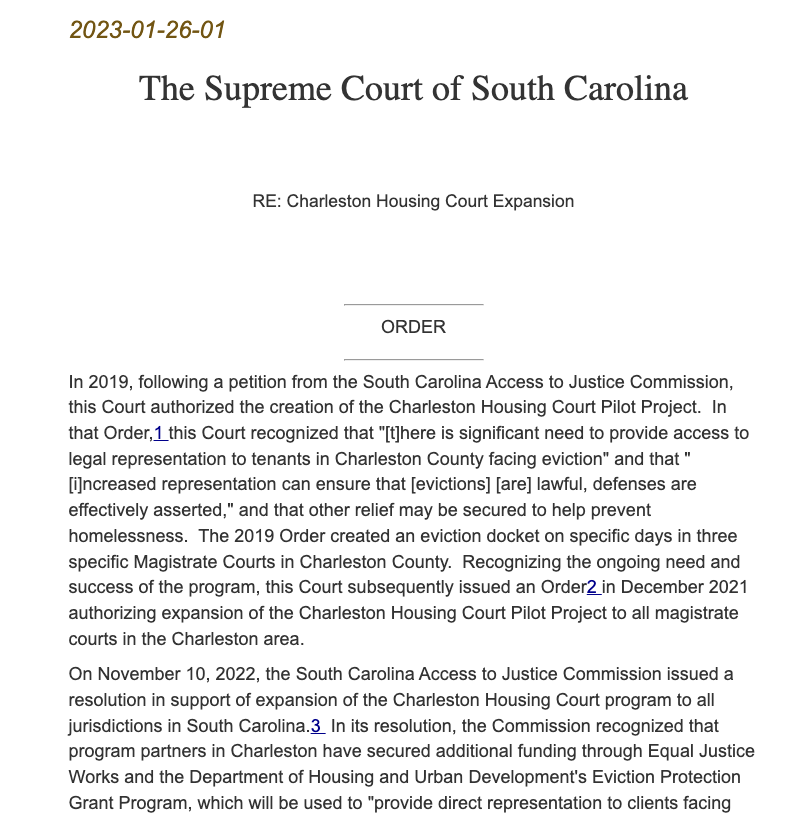
Housing Courts in Charleston, South Carolina
New Housing Court models have emerged out of Charleston, South Carolina, where stakeholders have created a program hosted in the court to get more access to legal representation to eligible tenants, to help them avoid evictions.
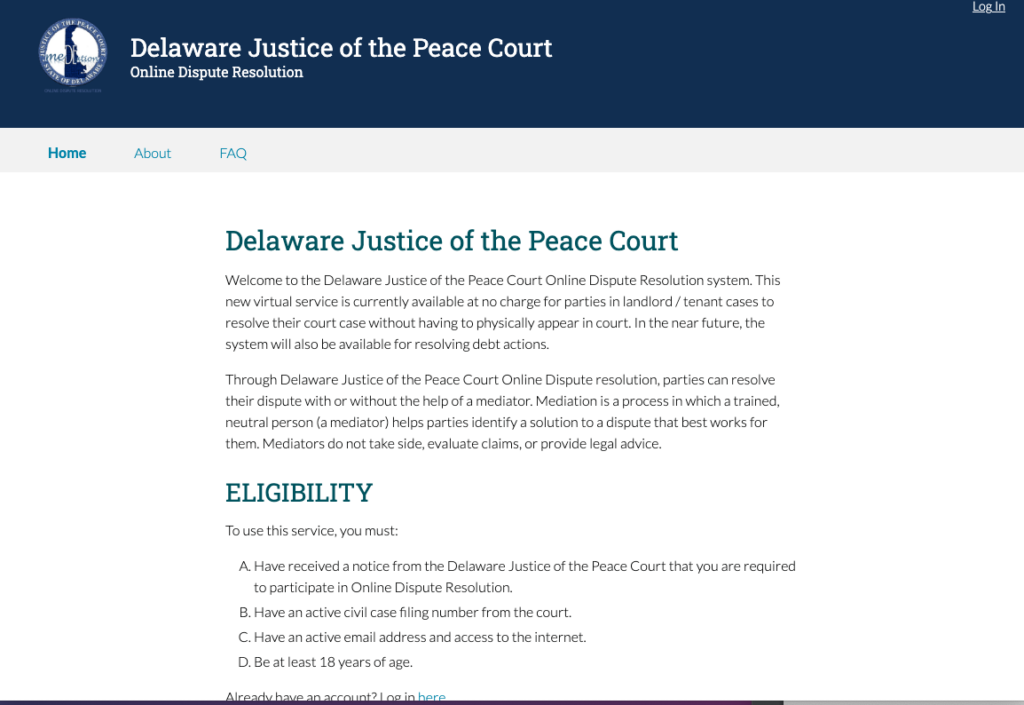
Online Dispute Resolution for landlord-tenant court in Delaware
Delaware Justice of the Peace court may be the first in the nation to launch an online platform for landlords & tenants to resolve their case without going to court in person. This Landlord-Tenant ODR system is built by Matterhorn (a Court Innovations company). https://cii2.courtinnovations.com/DEJPCOURT The ODR system allows for online mediation. In some cases it might be required by the judge. They may order the parties to participate in the ODR platform before a trial can be heard. Here is how the ODR system works, according to the court description: You talk to each other in writing…
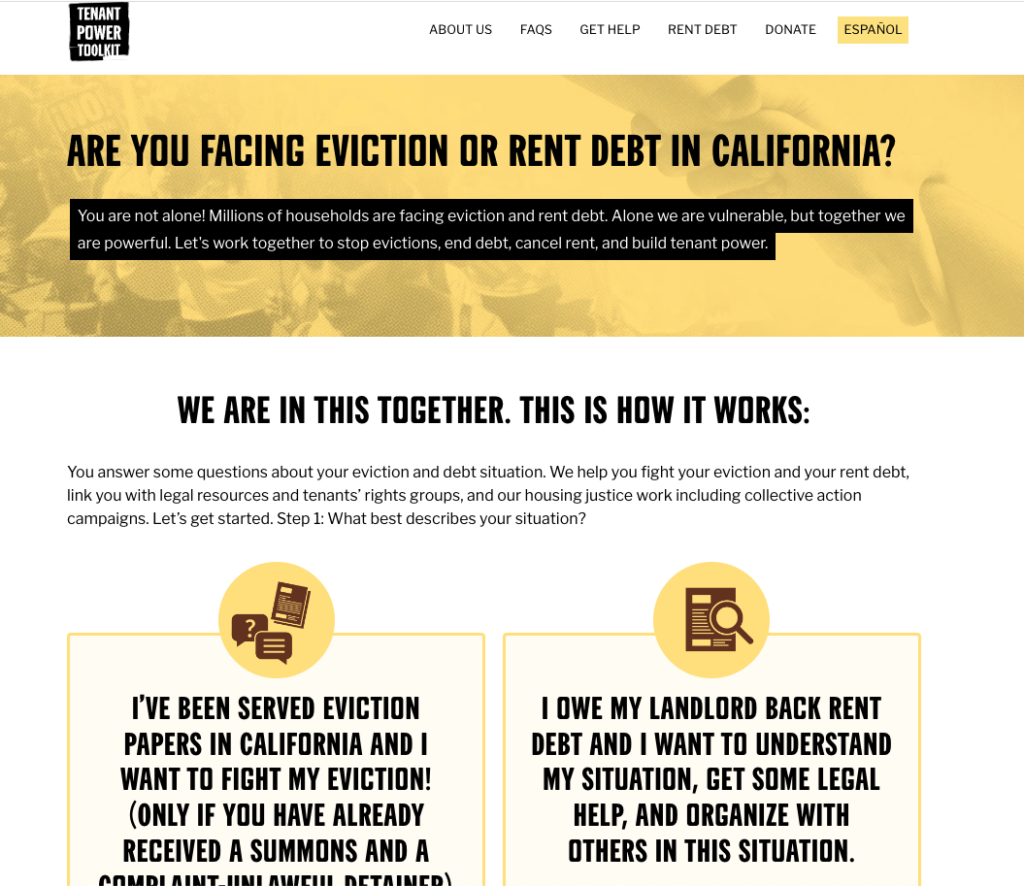
Tenant Power Toolkit for Californians
LA nonprofits have created a free legal technology tool for tenants to respond to their eviction lawsuits. The Tenant Power Toolkit helps a person easily fill in the answer form & get it into the court.
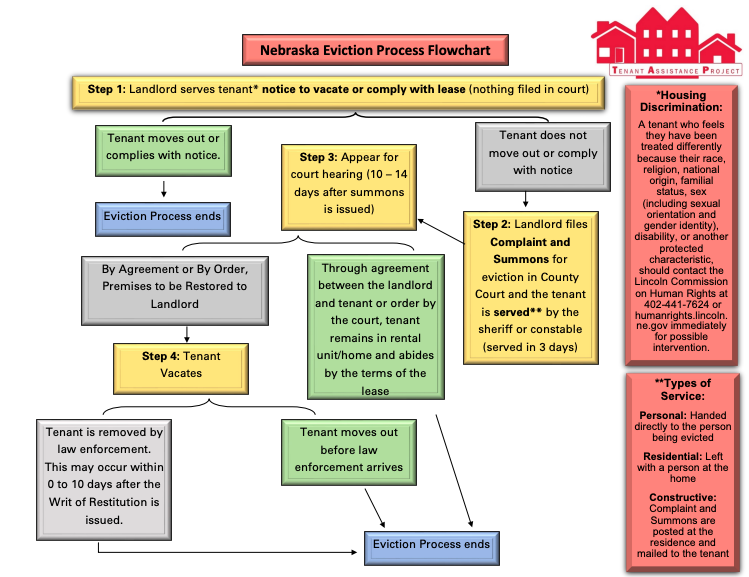
Tenant Assistance Project in Nebraska
Some counties in Nebraska have started a comprehensive court-based program to connect tenants with attorneys, resources, eviction defense strategies, and procedural coaching. This can stop immediate evictions.
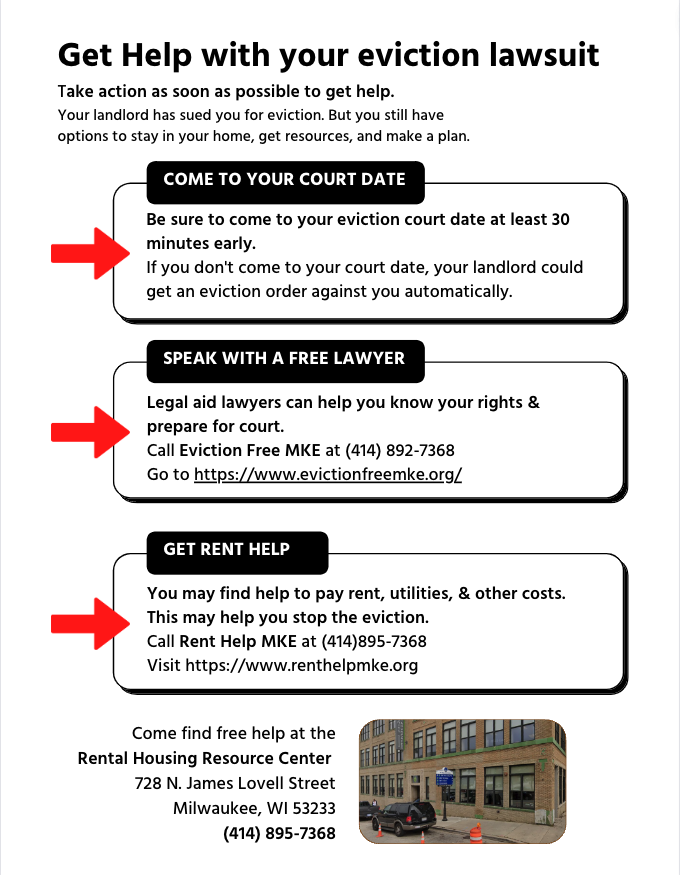
Eviction Help Flier
Make sure a tenant who has been sued for eviction also knows their options to get help & be prepared for court.
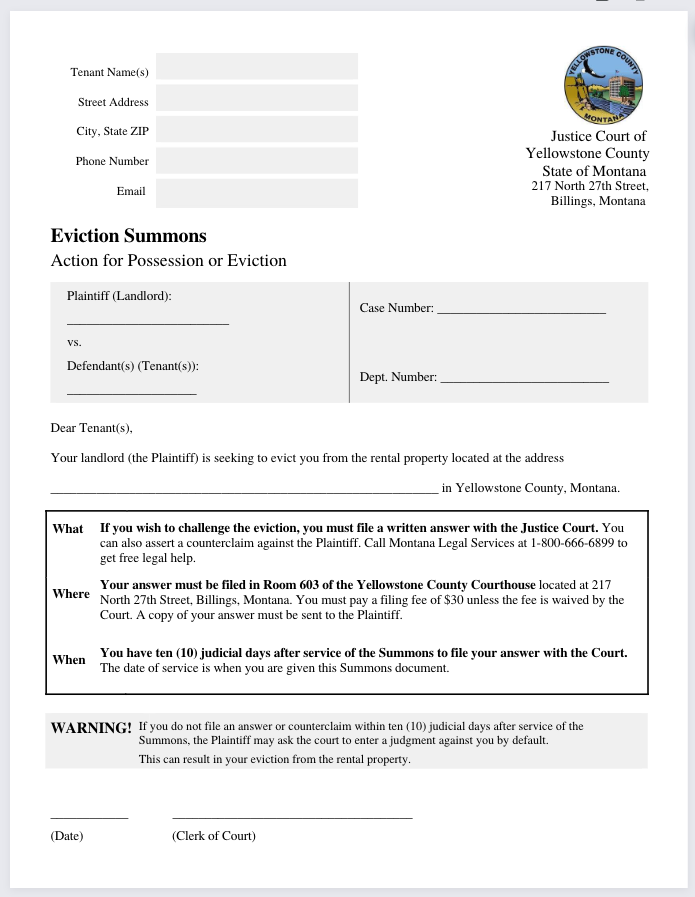
Eviction Court Summons from Montana
When a person is sued for eviction, how are they notified? A court summons is a crucial document to let them know about the lawsuit, help them connect with services, and get them prepared for important hearings and deadlines. This court summons was designed to be more user-friendly & accessible.
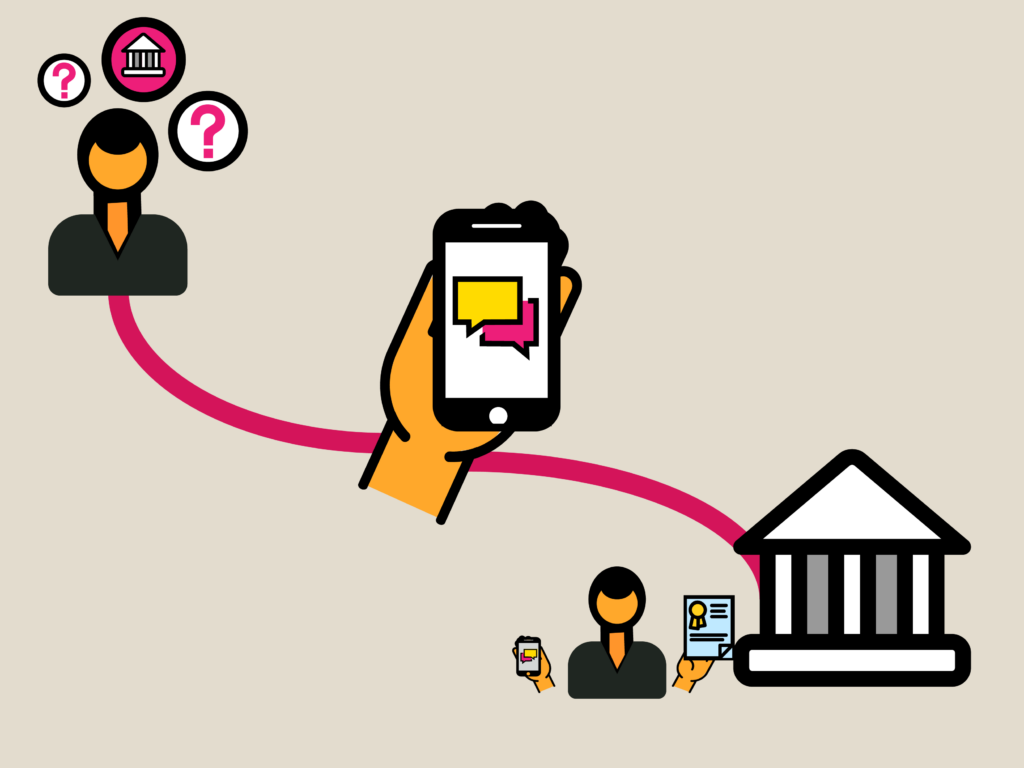
How can text messages help prevent evictions?
By Sarah Verschoor, originally published on Legal Design & Innovation During many evictions, tenants & service providers face a troubling paradox. Just when a tenant is most at risk of eviction — and most in need of legal, financial, and housing services — this is when it is most difficult for service-providers to engage with them. When people are behind on their rent or worried about their landlord suing them, it’s often very difficult to reach them. The Stanford Legal Design Lab led a team of students in January 2022 to interview tenants about their eviction experiences across the US….
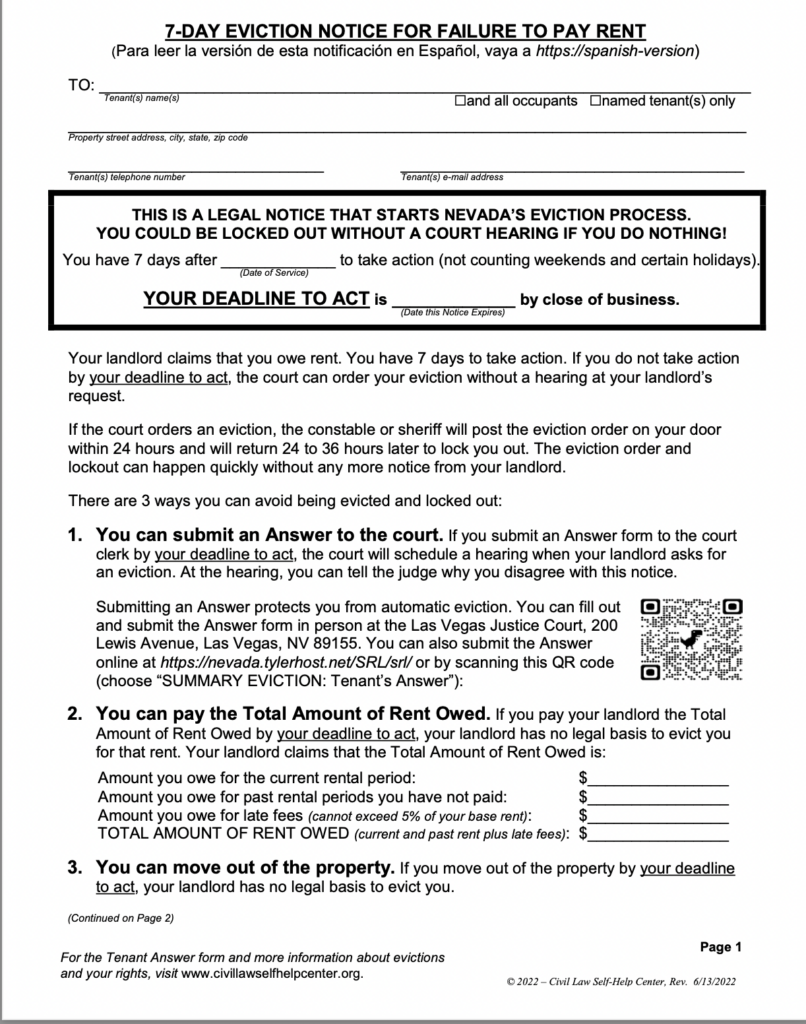
Eviction Notice design from Las Vegas
How can courts and legal actors warn a tenant about a possible eviction –so that they take action, connect with services, and avoid a forcible move? This new warning notice from Las Vegas is one example of a strategic, simplified design.
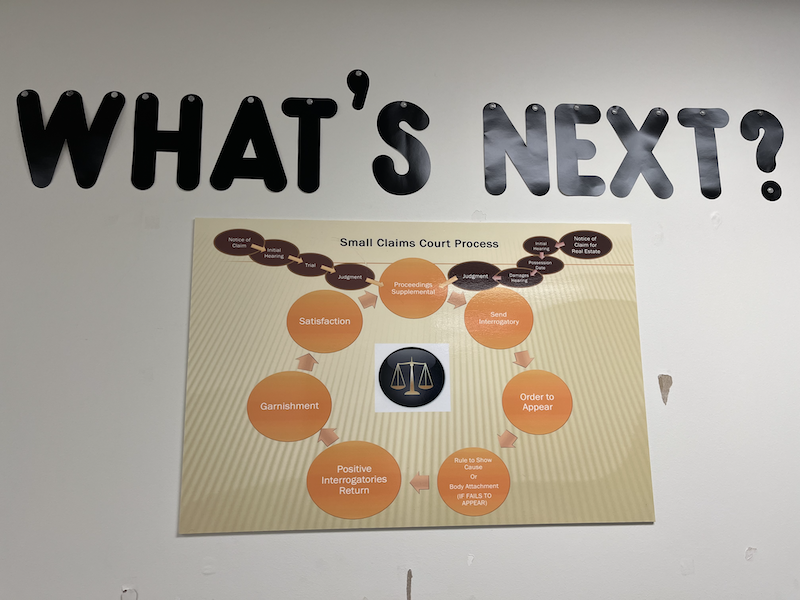
Housing Court Service Design in Indiana
Samira Nazem at National Center for State Court highlighted some innovations at local courts in Lawrence Township, Indiana in Marion County. They have worked to create more visual, supportive guides throughout the in-person court process for tenants and landlords looking for help. These DIY efforts are cost-effective but impactful, because they provide user-friendly signposts and support to a person through a stressful and intimidating journey through court Service Design through a Day in Housing Court These DIY efforts at the Indiana courthouse provide a service design of support for a person facing an eviction. The service design provides…
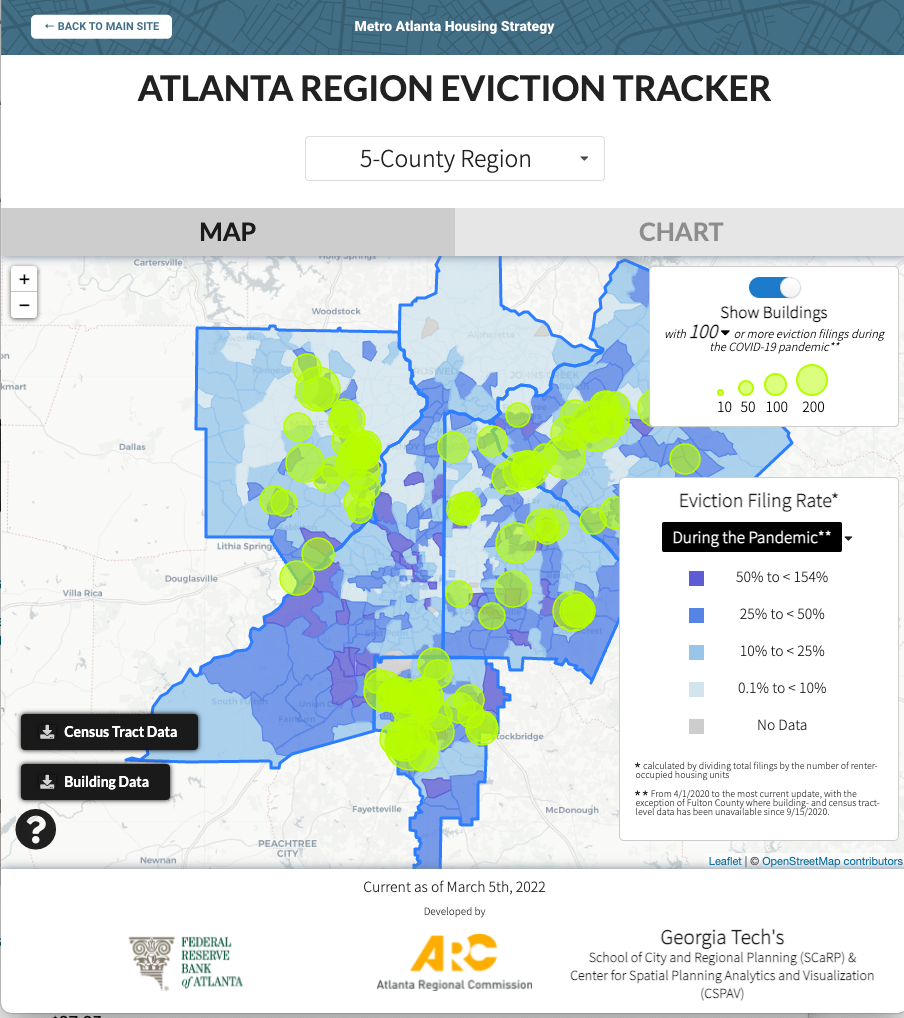
Eviction Data Tracker in the Atlanta Region
A coalition of the federal reserve, Georgia Tech, and a regional commission established a detailed eviction data tracker to understand what is happening with eviction court case filings.
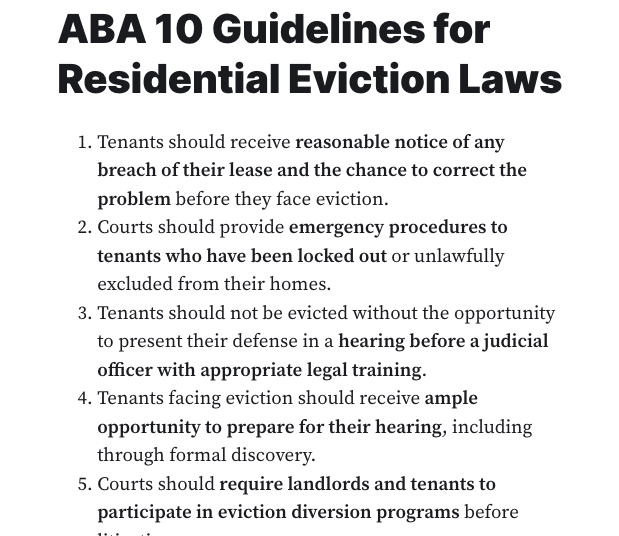
ABA Guidelines on Eviction Law
The American Bar Association has put out 10 Guidelines for Eviction Law, to guide local leaders in how to establish legal protections, due process, and diversion programs.
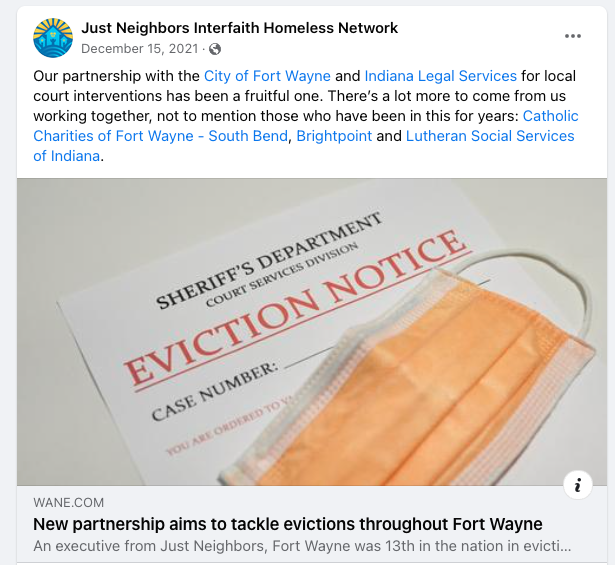
Eviction Intervention in the court house in Fort Wayne
A unique partnership in the Indiana town of Fort Wayne has created an in-court eviction prevention service to reach more tenants and landlords before they go to trial, with services and guidance that can help them come to a resolution and get financial help without going to court.

Texting tenants immediately after lawsuit is filed
Courts, legal aid groups, and diversion programs are using text messages to send reminders, referrals, and encouragement to tenants to participate in court and avoid eviction
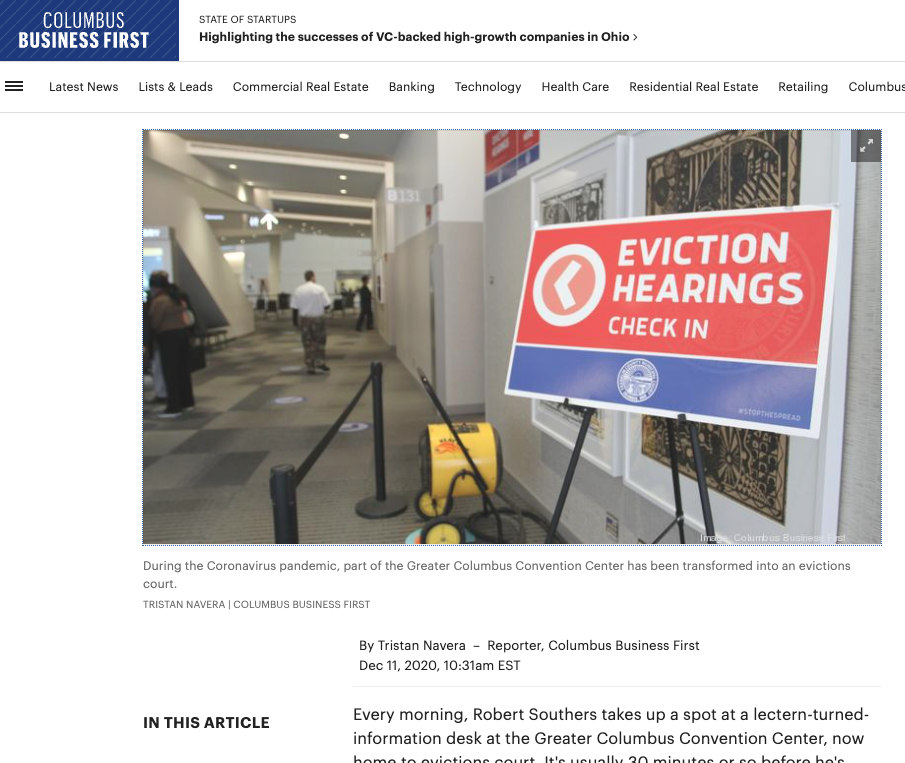
Social Work Navigators at eviction court in Ohio
Social worker navigators are a new way to connect tenants and landlords with important assistance to resolve their problems when they visit court. They can also help court leaders make smarter referrals to get to better outcomes.
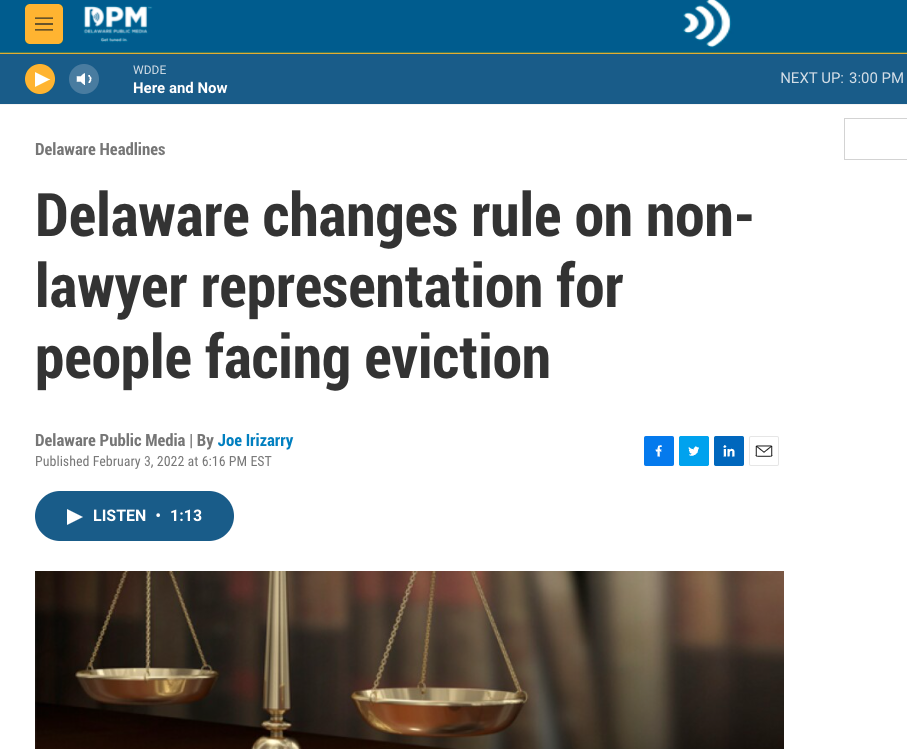
Qualified Tenant Advocates to represent tenants in courts
The Delaware Supreme Court established a new policy that allows non-lawyers — in this case, approved Qualified Tenant Advocates — to represent tenants in eviction court. This is only for residential tenants (not commercial ones). Usually, only licensed lawyers are allowed to represent tenants in the Delaware eviction courts, called Justice of the Peace Court. Landlords could be permitted to be represented by licensed advocates (non-lawyers) as well. Delaware is going to provide Qualified Tenant Advocates for free to tenants. These advocates will be trained by legal aid lawyers. See this information from Delaware Public Media: The advocate…
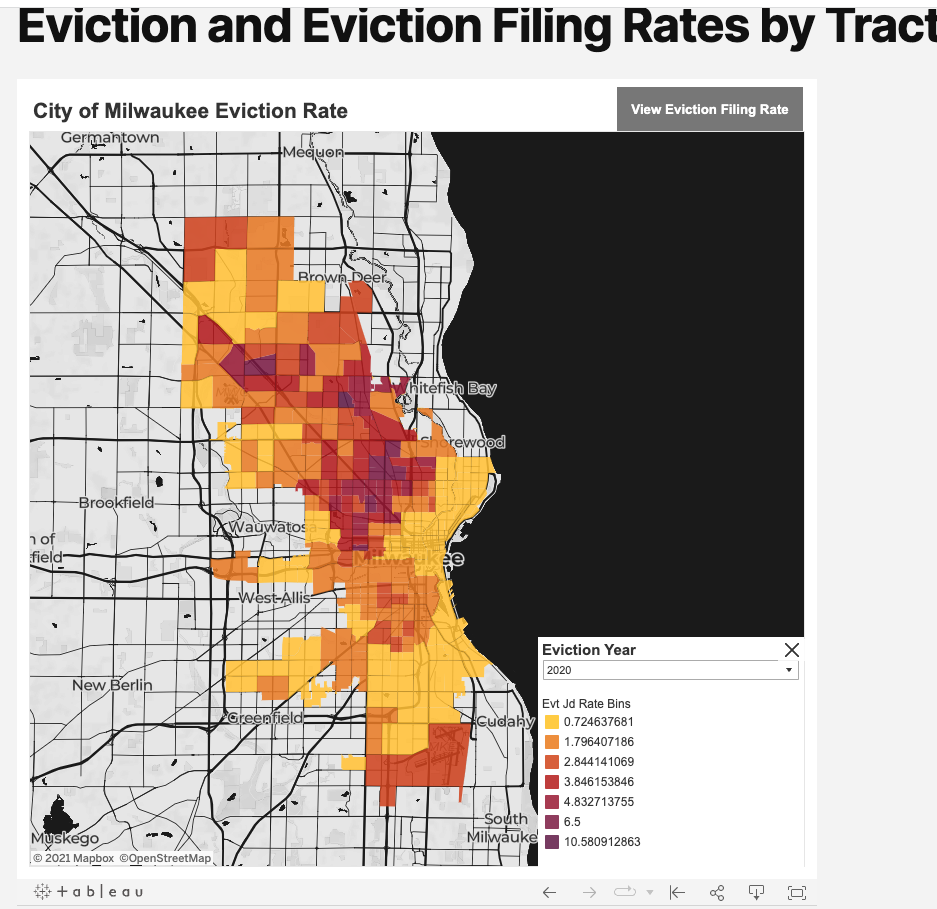
Data tracking evictions in Milwaukee
The Track Milwaukee Evictions website has gathered data about local eviction filings, court outcomes, neighborhood risk, and housing code violations. They present the data fields & visualizations to show how the eviction system works locally — and who is most at risk.

ERAP smart digital system in Philadelphia
In Philadelphia, the housing team has used federal funds to build a smarter, more flexible technical system to improve their ERAP applications.
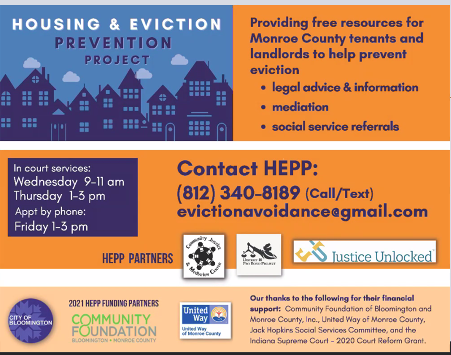
Online court mediation & services in Monroe County, Indiana
The Housing & Eviction Prevention Project (HEPP) in Indiana provides free legal, mediation, and social services to court. It includes integration into the court process, so once people are facing an eviction trial, they may be linked to services that can help them resolve their problem out of court.
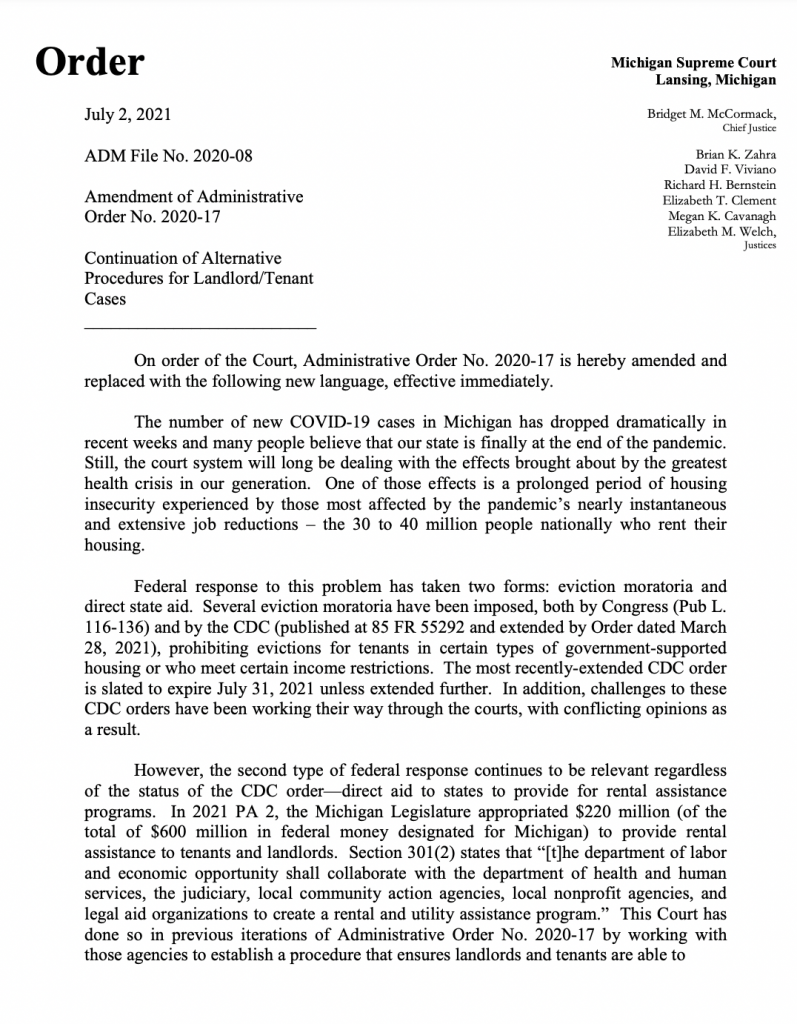
Michigan eviction court procedure reforms
The Michigan state courts have created new court rules that help to slow down eviction cases, direct more landlords and tenants to rent assistance, and encourage the court to help the parties to resolve their dispute without going to trial.
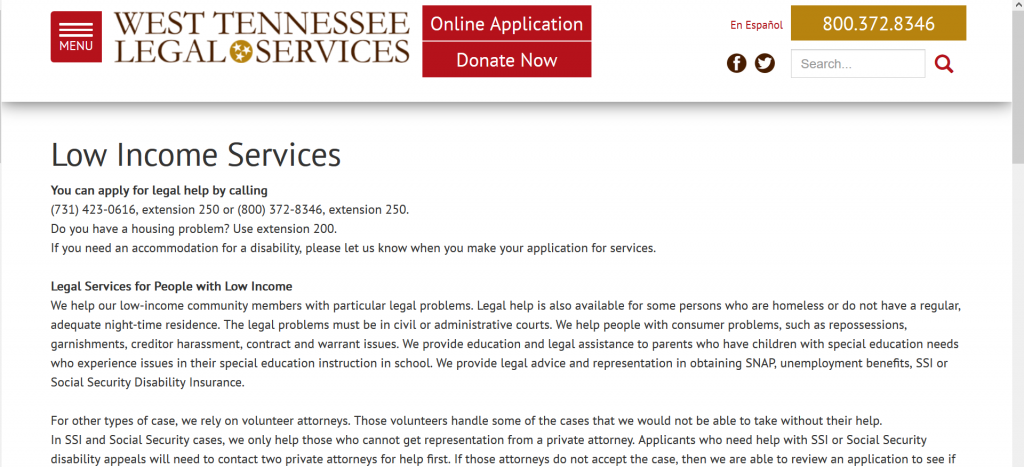
Housing Education and Assistance in Tennessee
The program provides housing assistance and education to low-income community members. Services include: mediation, education and legal advice.
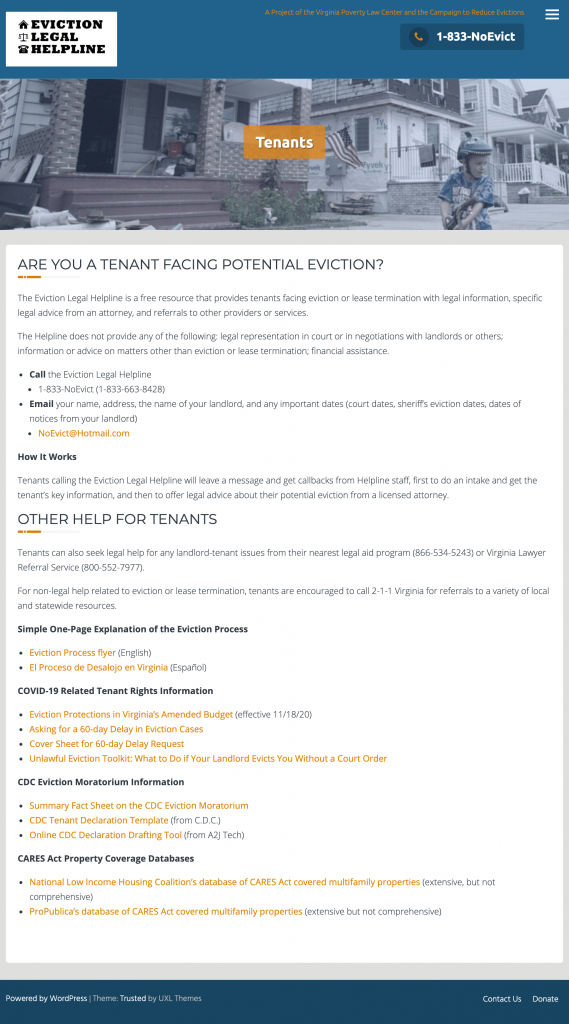
Eviction Legal Helpline in Virginia
The Eviction Legal Helpline provides Virginian tenants with advice, information, and referrals. It works via phone and emails.
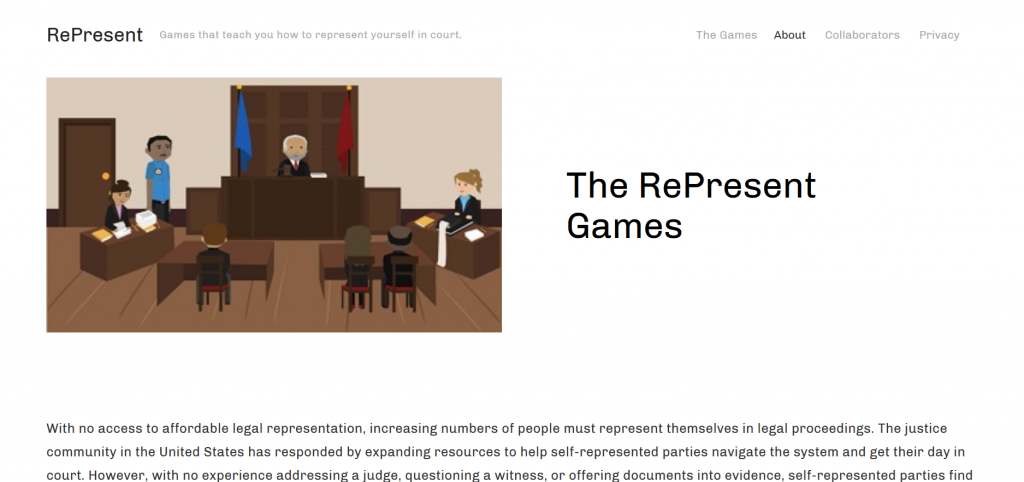
RePresent tenant education games in Connecticut & Maine
RePresent: Renter is a mobile phone game that users can download and play in order to learn how to defend themselves against an eviction. It is currently available in Connecticut and Maine.
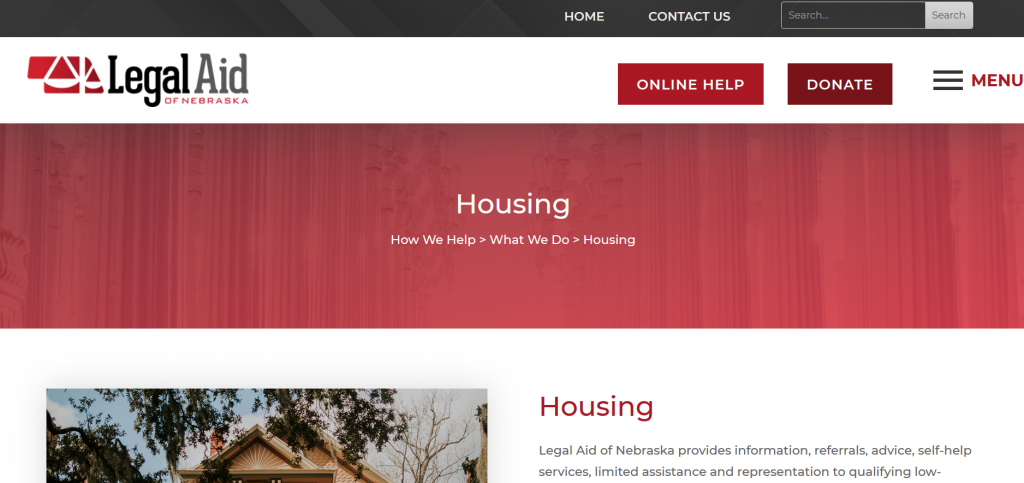
Housing Justice Project in Nebraska
The program provides assistance to low-income individuals with housing problems. Assistance includes, information, referrals, advice, self-help services and limited assistance and representation to qualifying low-income individuals with legal problems that fit within their housing priority.
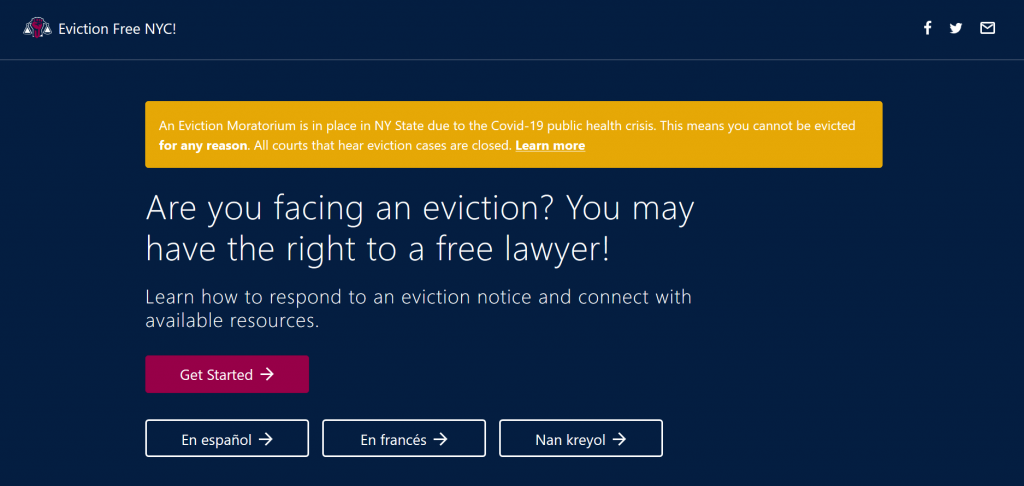
Website connecting tenants with free attorneys in NYC
The Eviction Free NYC website helps connect people with free legal help. Any tenant in NYC who is facing eviction can go to the website to determine if they are eligible for Right to Counsel and learn how they can access a free attorney.
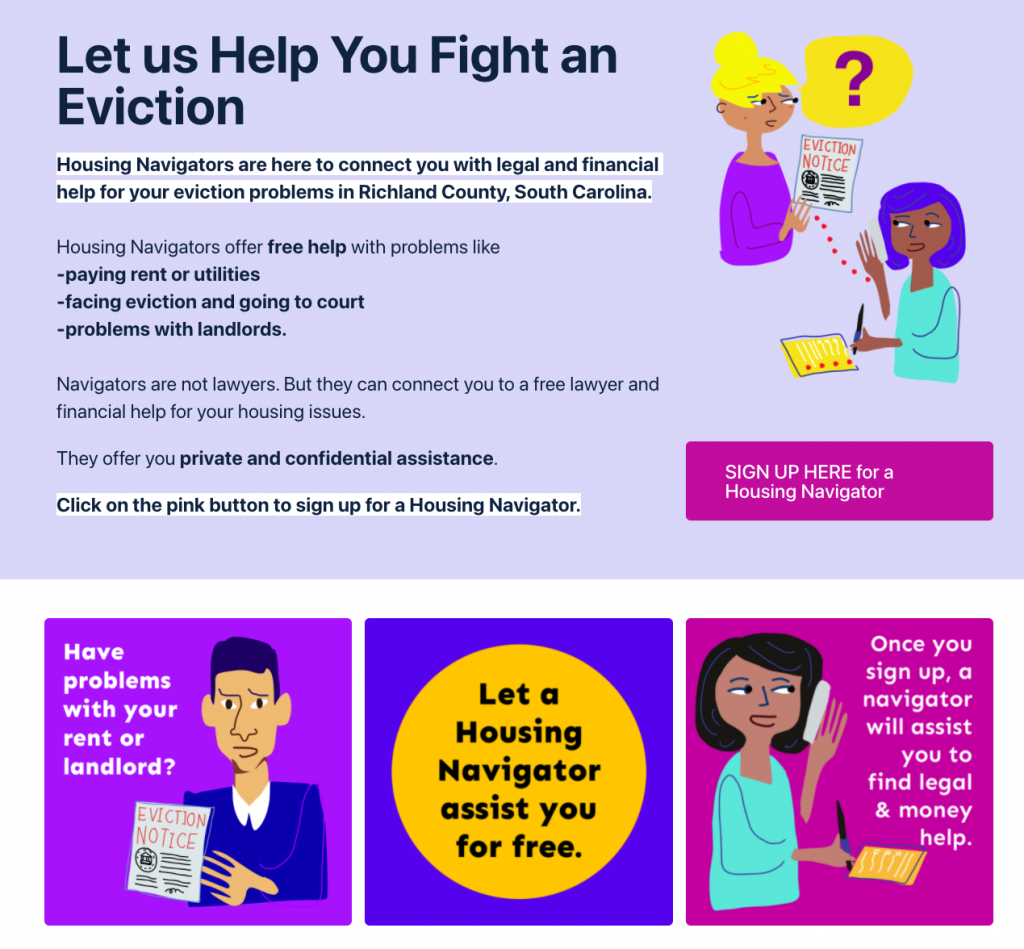
NAACP eviction navigators & diversion program in South Carolina
This new South Carolina pilot from the NAACP and other local partners combines various prevention and help services for tenants and landlords at risk of eviction.
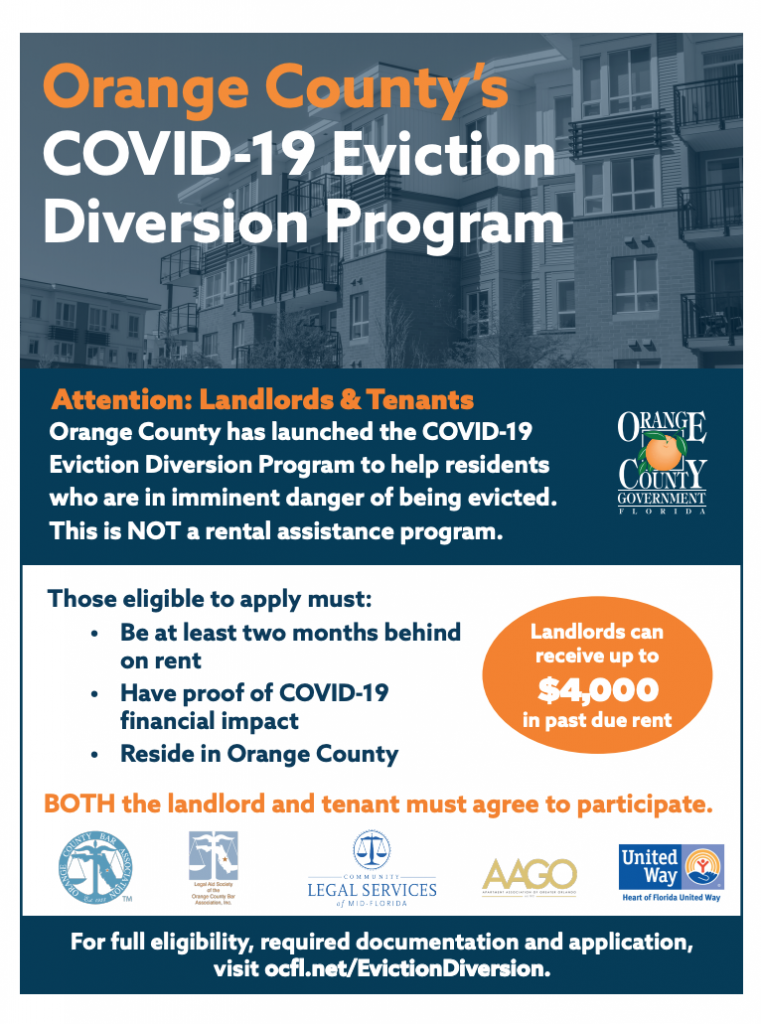
Orange County, Florida eviction diversion program
In an effort to help curb evictions due to the COVID-19 pandemic, the Orange County Board of County Commissioners created the Orange County COVID-19 Eviction Diversion Program. The $13.3 million program is funded by the Federal CARES Act monies.
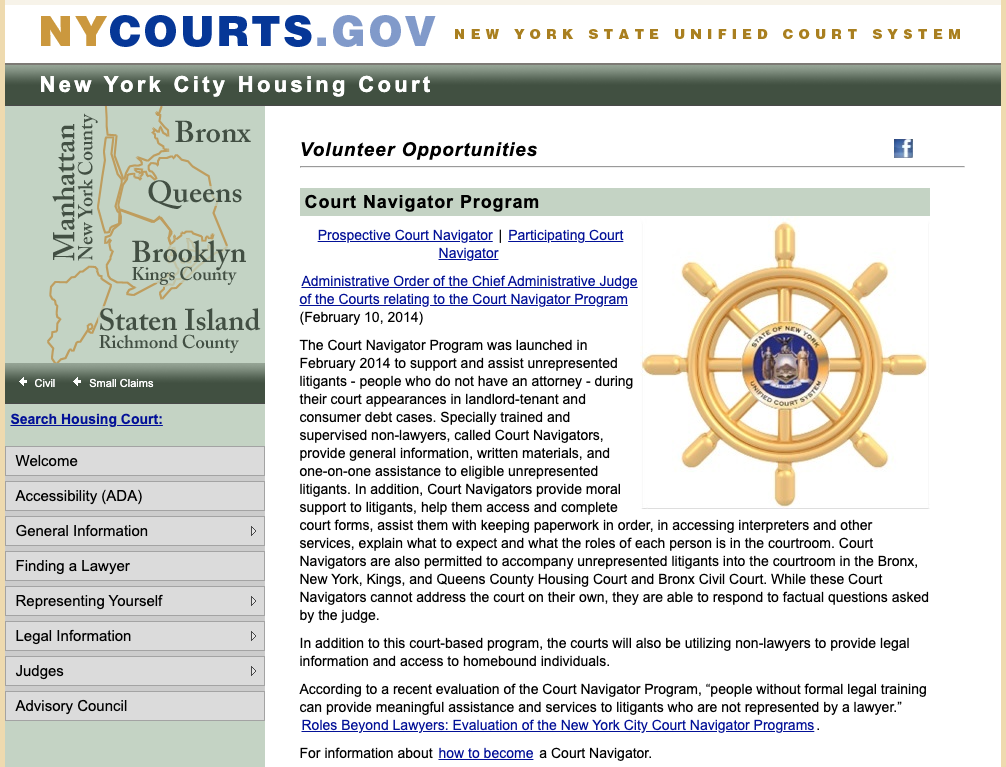
NYC Housing Court Navigators
The New York City Housing Courts has a navigator program to support and assist unrepresented litigants – people who do not have an attorney – during their court appearances in landlord-tenant and consumer debt cases.
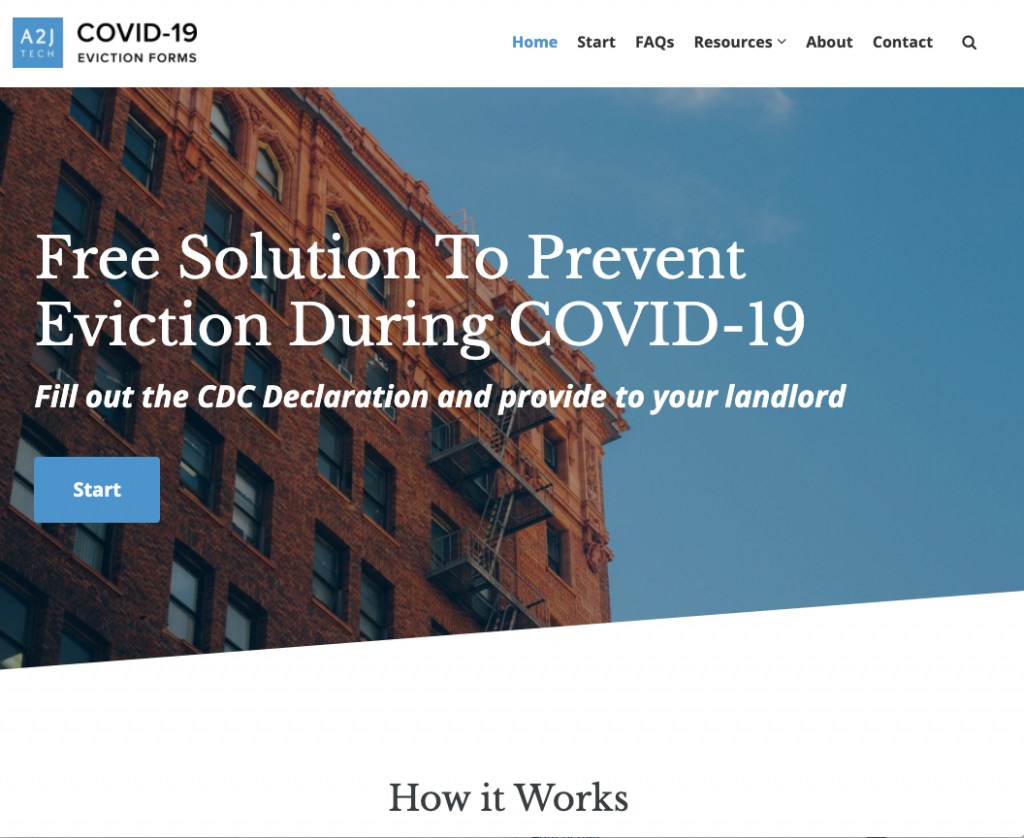
COVID-19 Eviction Forms
How can a person get protected under the national eviction moratorium during COVID-19? They need to fill in a Declaration document, as well as making sure they fit the requirements the CDC has laid out. This online tool, COVID-19 Eviction Forms, leads people through this Declaration drafting.
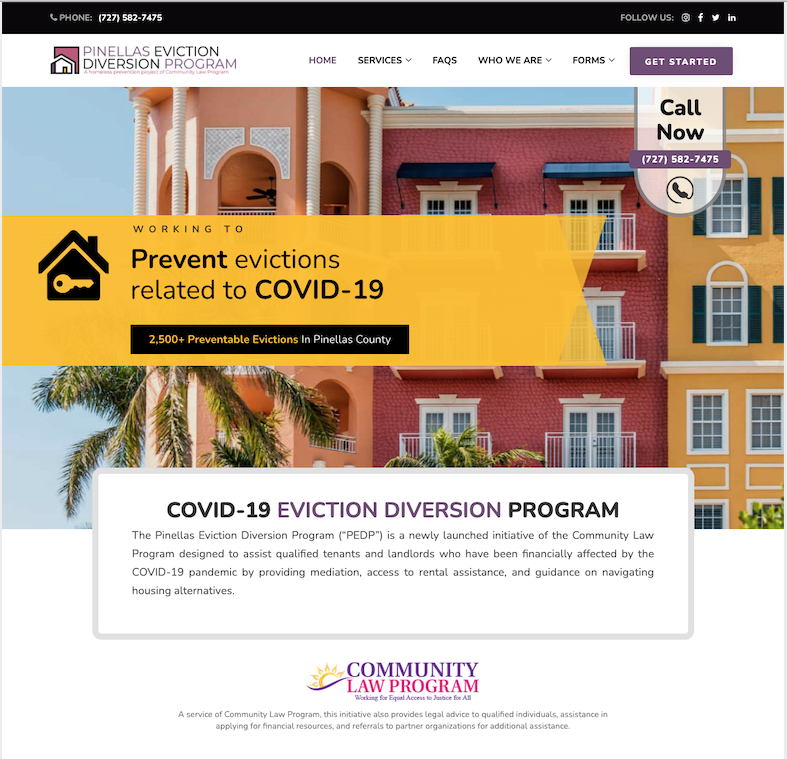
Eviction Diversion Program in Pinellas County, Florida
Renters and landlords in Pinellas County, Florida are eligible for a COVID-19 Eviction Diversion Program to help them reach a mutual agreement, pay back-rent, get help with stable housing and financial assistance, and navigate social services. It is run by the Community Law Program in the county.
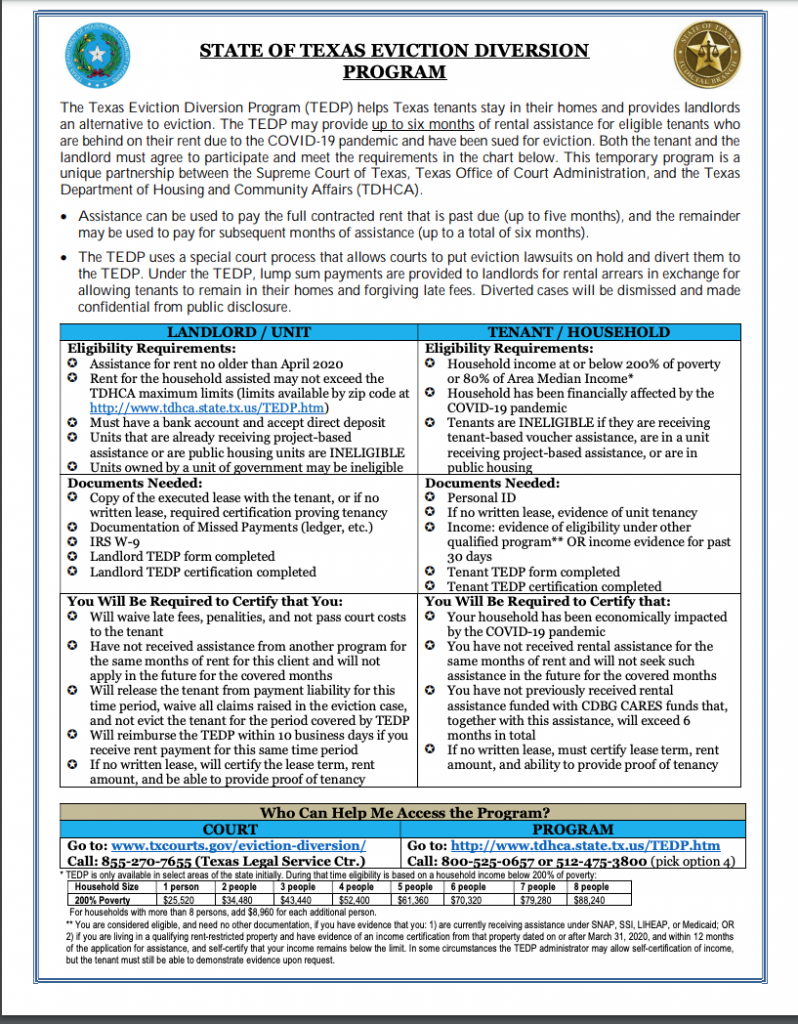
Texas statewide Eviction Diversion Program
The new Texas statewide eviction diversion program offers help during COVID-19 to renters and landlords. It applies once a lawsuit has been filed, and tenants are behind on rent.
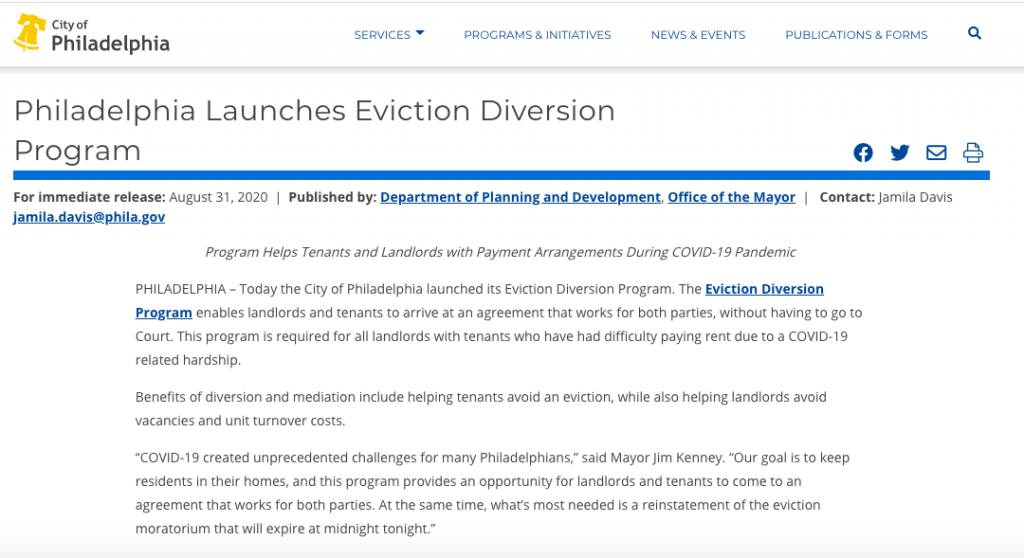
PHL Eviction Diversion Program in Philadelphia
The Philadelphia City Council has created an Eviction Diversion Program to help them mediate to a solution during COVID-19 hardships. It is to avoid court processes and eviction judgments.
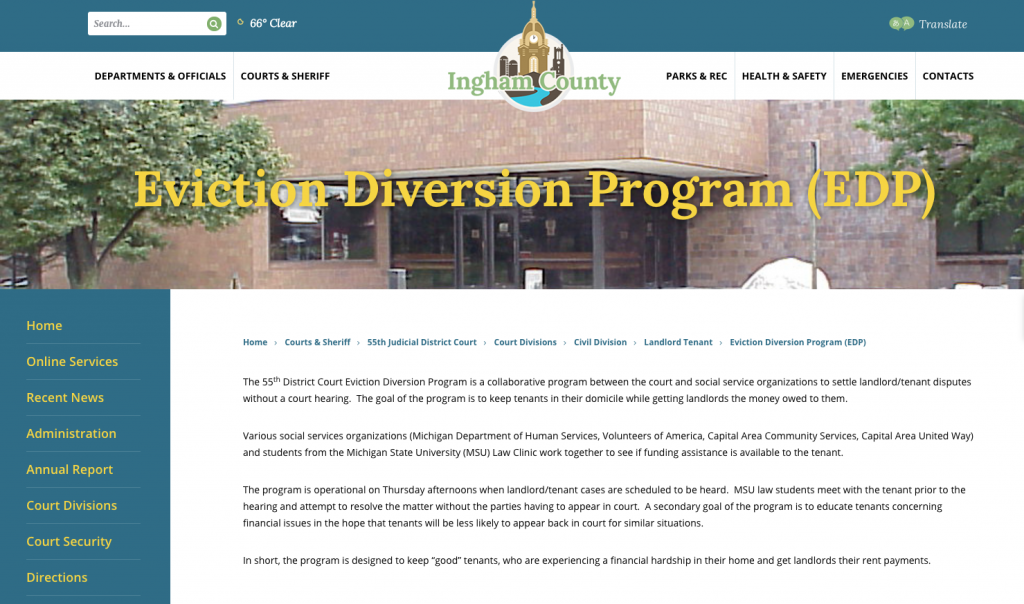
Eviction Diversion Program in Ingham County, MI
The court in Ingham County, Michigan has an Eviction Diversion Program to try to resolve eviction lawsuits and keep tenants housed.
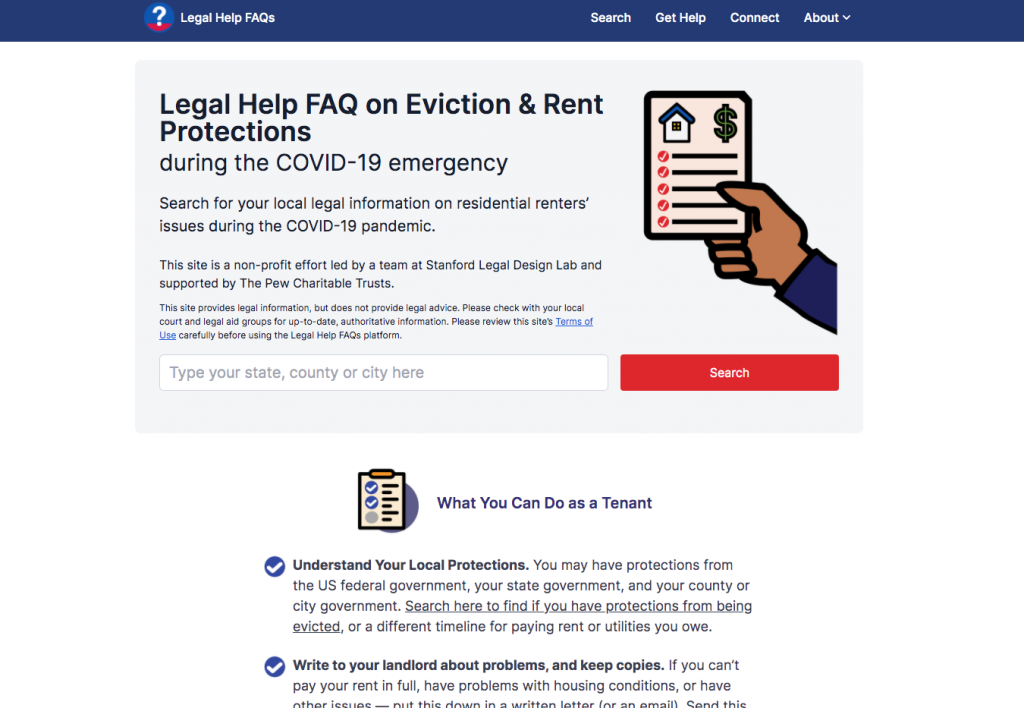
Eviction Legal Help FAQ site for COVID-19 renters’ rights
The national eviction help and renters’ rights FAQ site coordinates plain-language explanations of emergency COVID-19 protections for renters. It also presents them with local legal and financial assistance they can use.
Can I be evicted? What if I can’t pay my rent because of COVID? Who can help me cover my housing costs? This FAQ site is designed to get these local answers featured more prominently on search engines and elsewhere online.

Pittsburgh’s Eviction Diversion through Mediation Program
The city of Pittsburgh is launching an Eviction Diversion through Mediation program. This program offers free mediation services for landlords and tenants prior to filing for an eviction. It provides the same services for cases that have been filed but have not yet been granted a judgment.
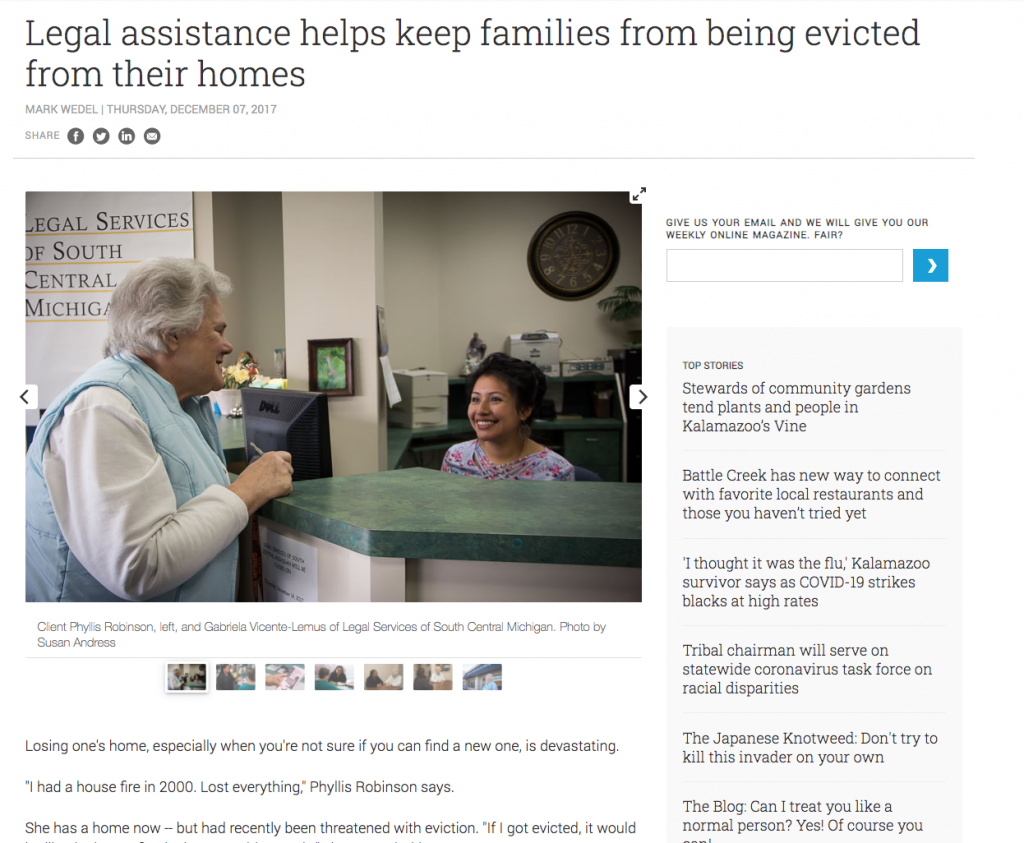
Eviction Diversion Program in Jackson County, MI
Jackson County, Michigan has an Eviction Diversion Program that lets tenants opt into the program, have mediation, legal services, and emergency assistance if they qualify. The goal is to help deal with underlying issues in the landlord-tenant relationship, and the holistic set of problems the tenant is dealing with.
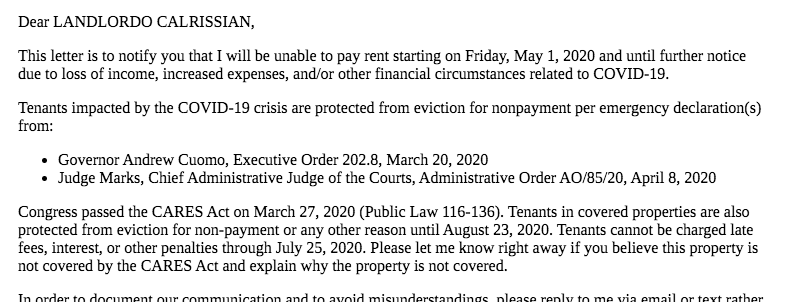
Letter Writer with Local Law for Tenants during COVID-19
A national letter-writing tool for tenants, that integrates local law — during the COVID-19 pandemic. Tenants can use the tool to write a letter that protects their rights and documents their issues — and also send the letter to the landlord.
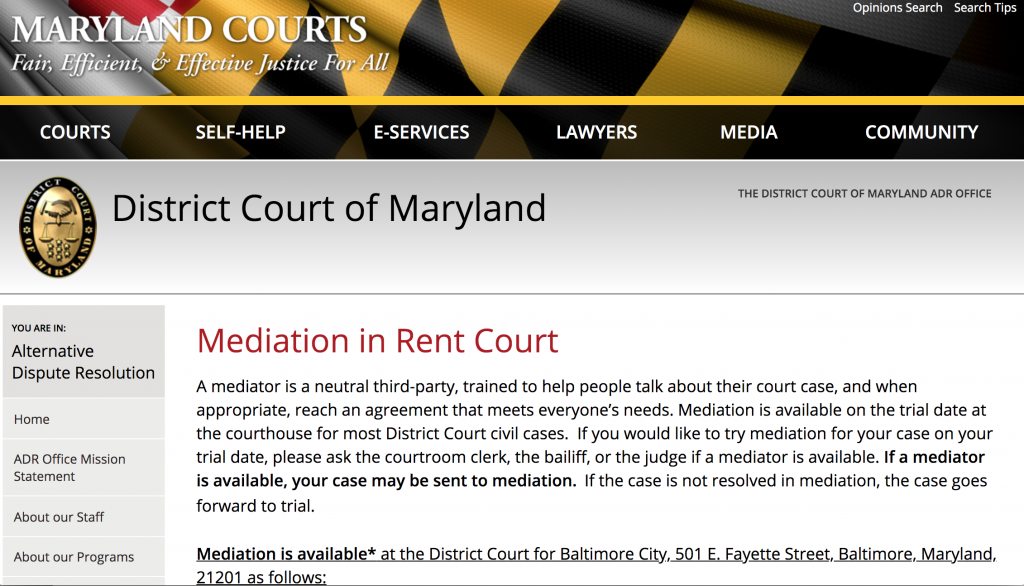
Rent Court Mediation in Maryland
Baltimore Rent Court offers an in-court Mediation program for landlord-tenant issues. They provide a free 3rd party neutral to help the parties come to a settlement and avoid going to trial.
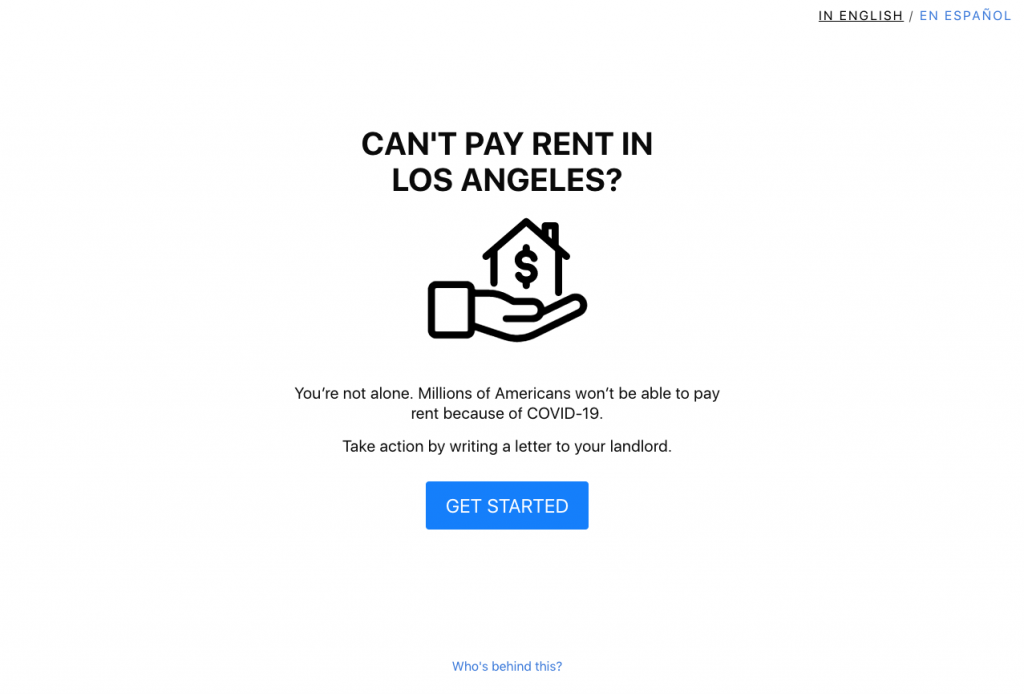
Letter-writer for COVID-19 emergency in LA
A letter-writing tool to generate an official notice that a tenant can’t pay rent due to the COVID-19 pandemic, to ensure the landlord is given proper notice.
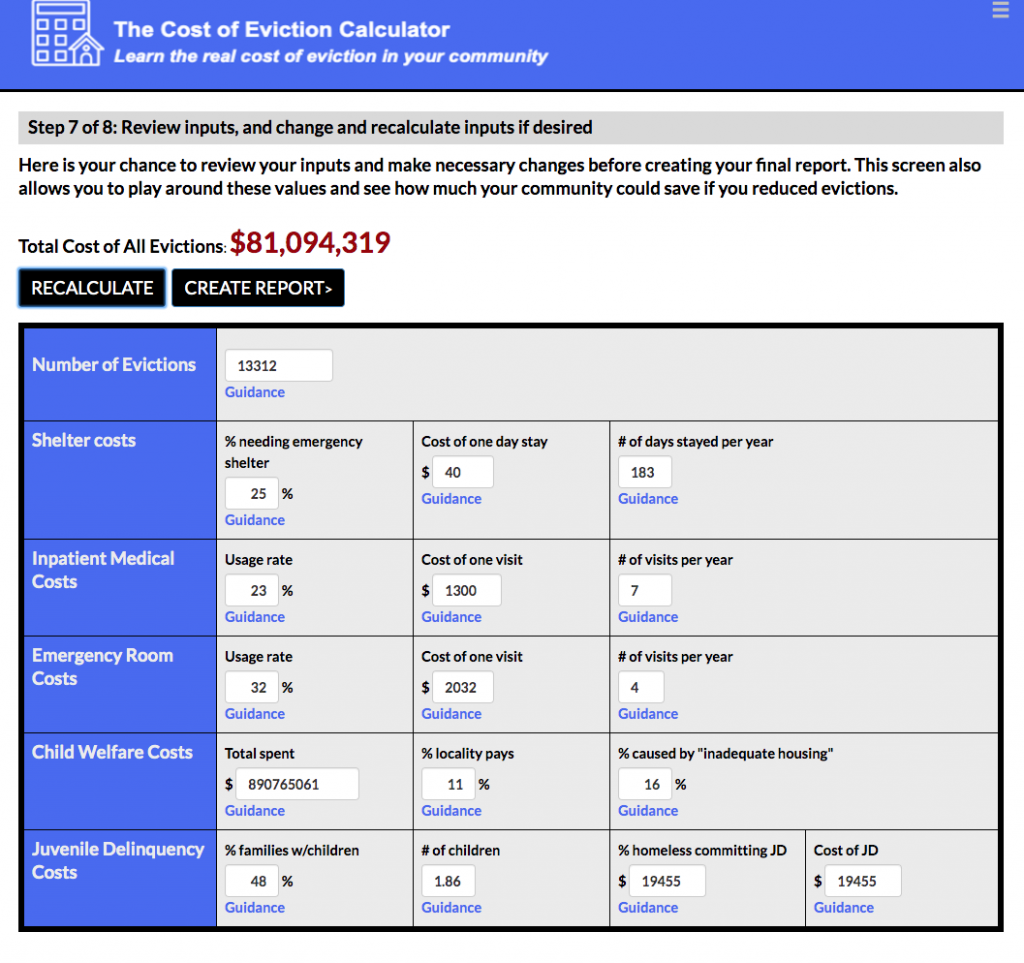
Eviction Cost Calculator
The I4J Lab at University of Arizona has created a Cost of Eviction Calculator. This tool can help policy-makers, service-providers, and others to determine what the financial cost of an eviction is to their community.
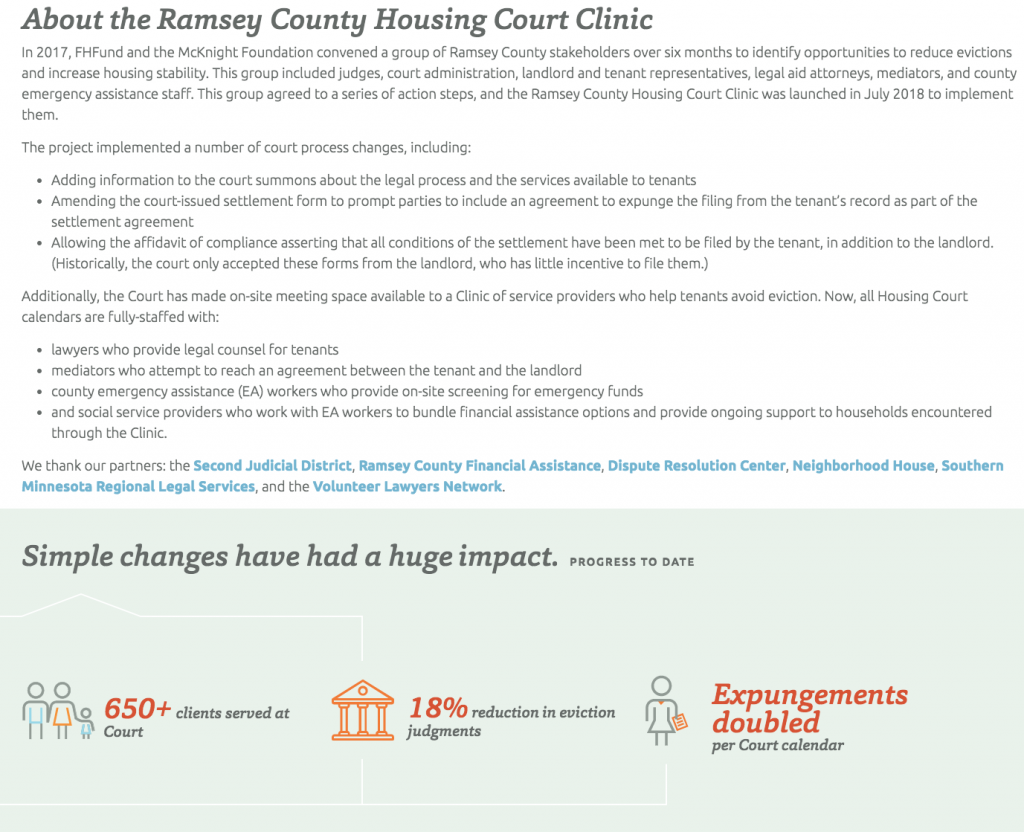
One-Stop Eviction Diversion Clinics at Housing Court & Neighborhood Centers in Minnesota
The Housing Court Clinic offers a suite of legal, dispute resolution, and financial help to tenants, as well as streamlined court process to help prevent evictions. The clinic has expanded to a Pre-Eviction neighborhood Crisis Clinic, to get the same co-located, holistic resources to tenants at a preventative stage.

Right to Counsel in NYC
NYC’s Right to Counsel program provides free full-representation lawyers to tenants who live in eligible zip codes, and who are income-eligible. It is run by the city government’s Office of Civil Justice, in partnership with the NYC Housing Courts, local legal aid groups, and the Right to Counsel NYC Coalition.
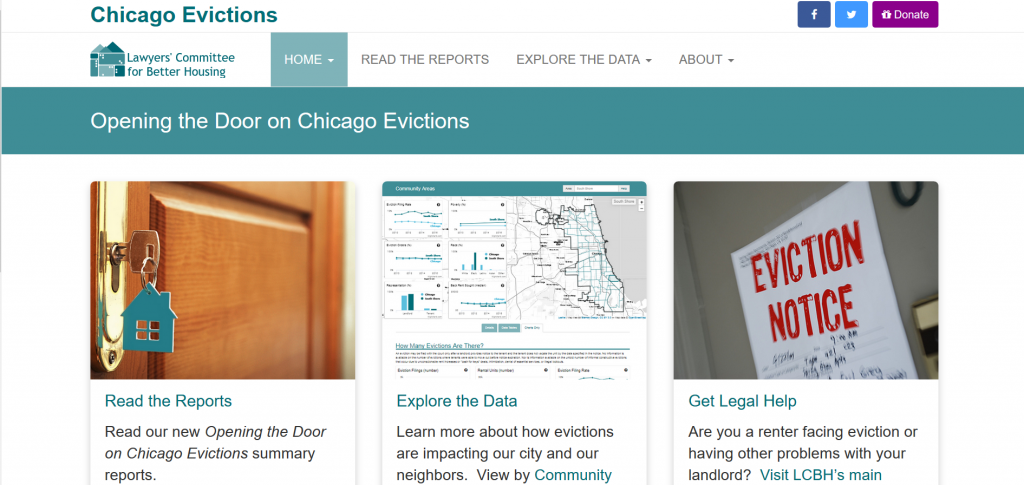
Eviction Data Portal in Chicago
The Chicago Evictions data portal is a resource to help policy makers, community groups and others investigate Chicago’s chronic eviction problem.
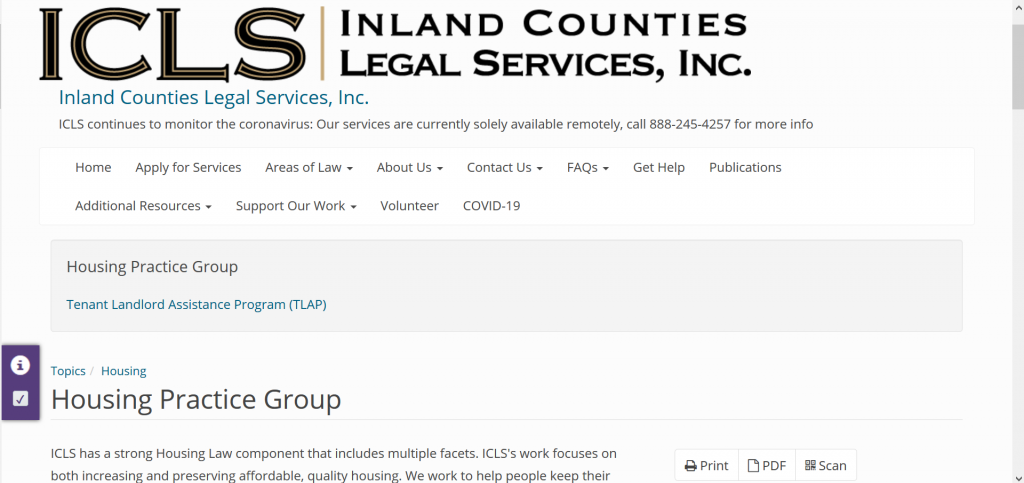
Tenant-Landlord Assistance Project in southern California courts
The TLAP program in California provides legal services to qualified tenants and landlords involving unlawful detainer actions.
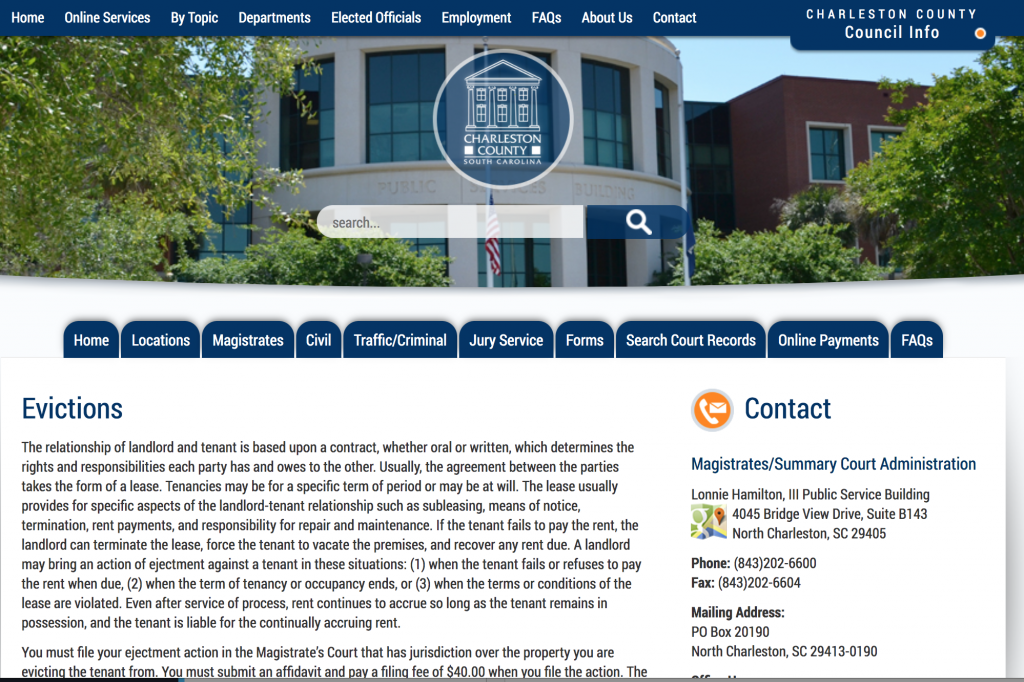
Charleston Housing Court Pilot Project in South Carolina
The Charleston County Housing Court provides legal help to low-income families facing eviction. The objective of the court is to help tenants avoid eviction through mediation with the landlord, providing help to pay rent or assessing whether the eviction was legally served.
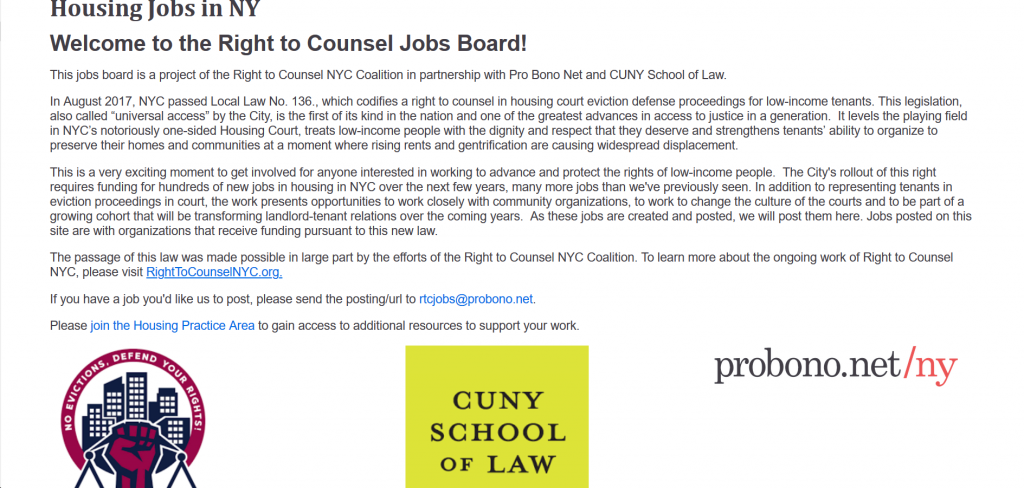
Right to Counsel Housing Jobs Board in NYC
This job board program is for prospective tenant attorneys, to provide them with an overview of right to counsel housing jobs in NYC.
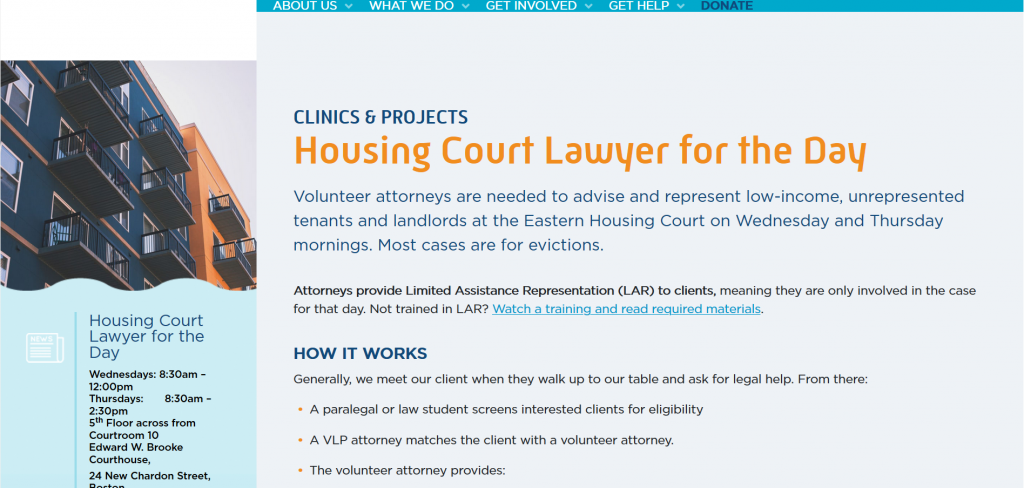
Housing Court Lawyer for the Day programs in Massachusetts
Volunteer attorneys provide Limited Assistance Representation to low-income, underrepresented tenants and landlords in housing courts in Massachusetts.
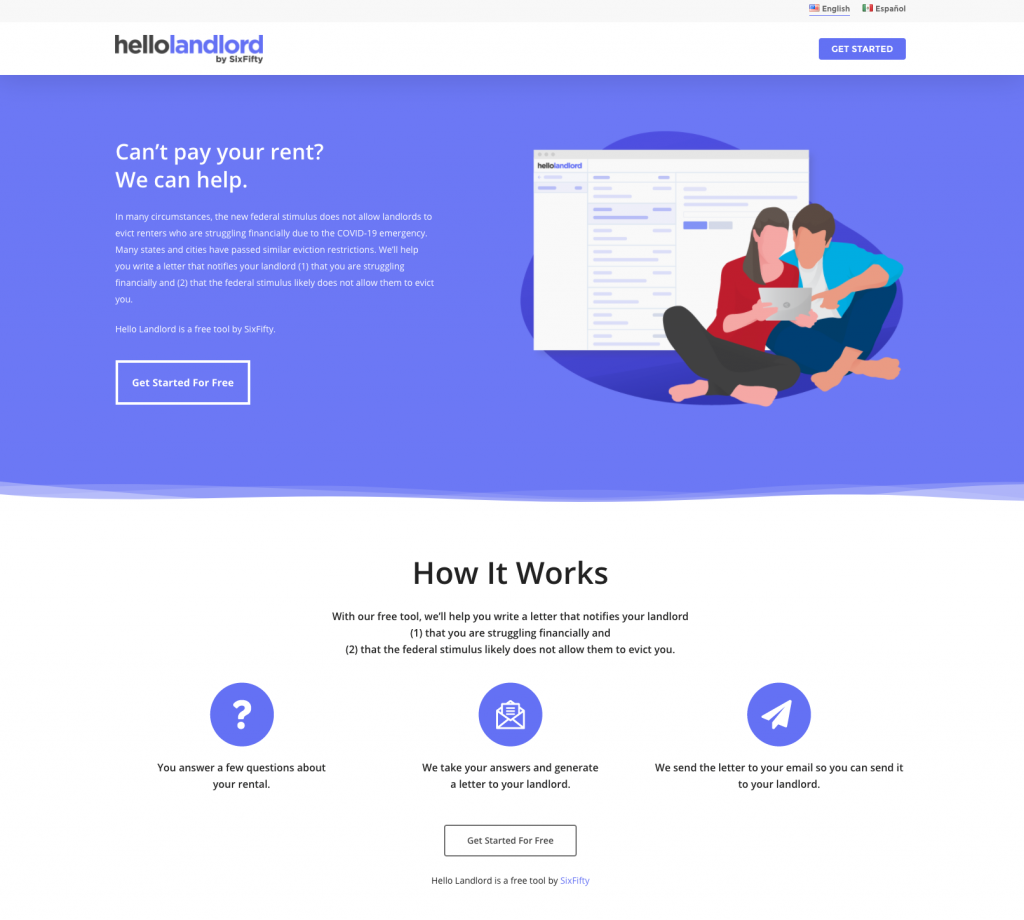
Eviction Prevention Letter-Writer, Hello Landlord
Hello Landlord is a program developed by LawX and SixFifty to resolve rental issues before eviction takes place. The program helps tenants write a letter to their landlord if they have missed rent or need a repairs to their apartment.
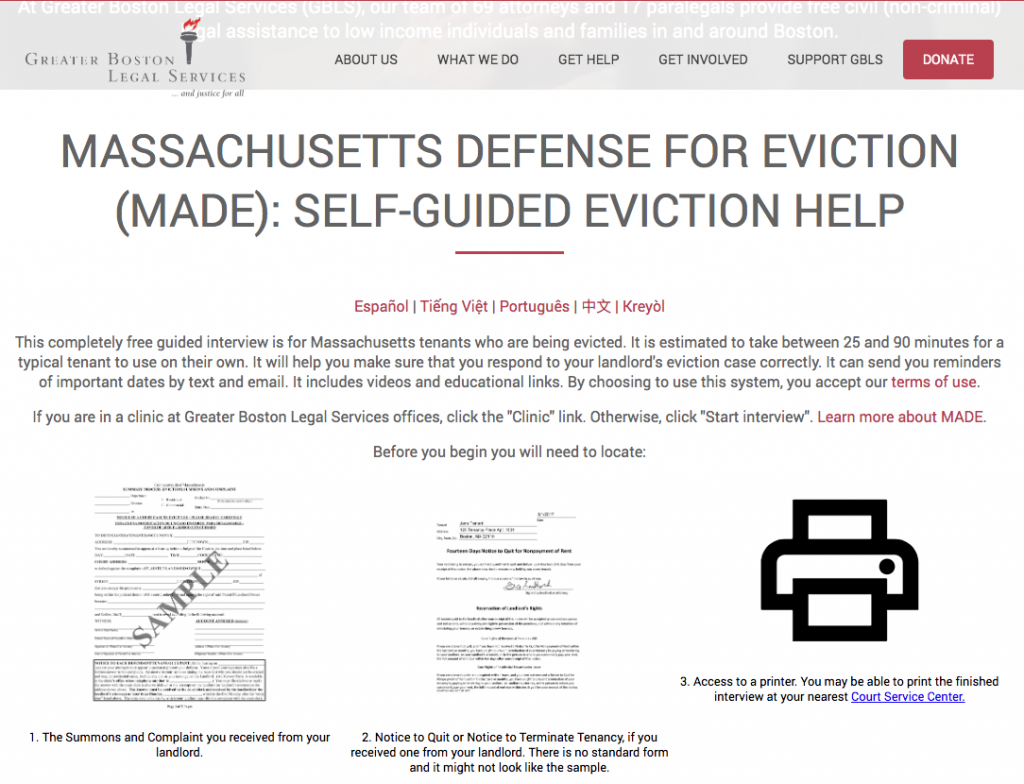
Online Legal Self-Help in Boston
MADE is an online tool to let tenants produce eviction pleadings if they are facing a lawsuit. It helps replace a 4 hour clinic that a legal aid group runs to help tenants respond to evictions.
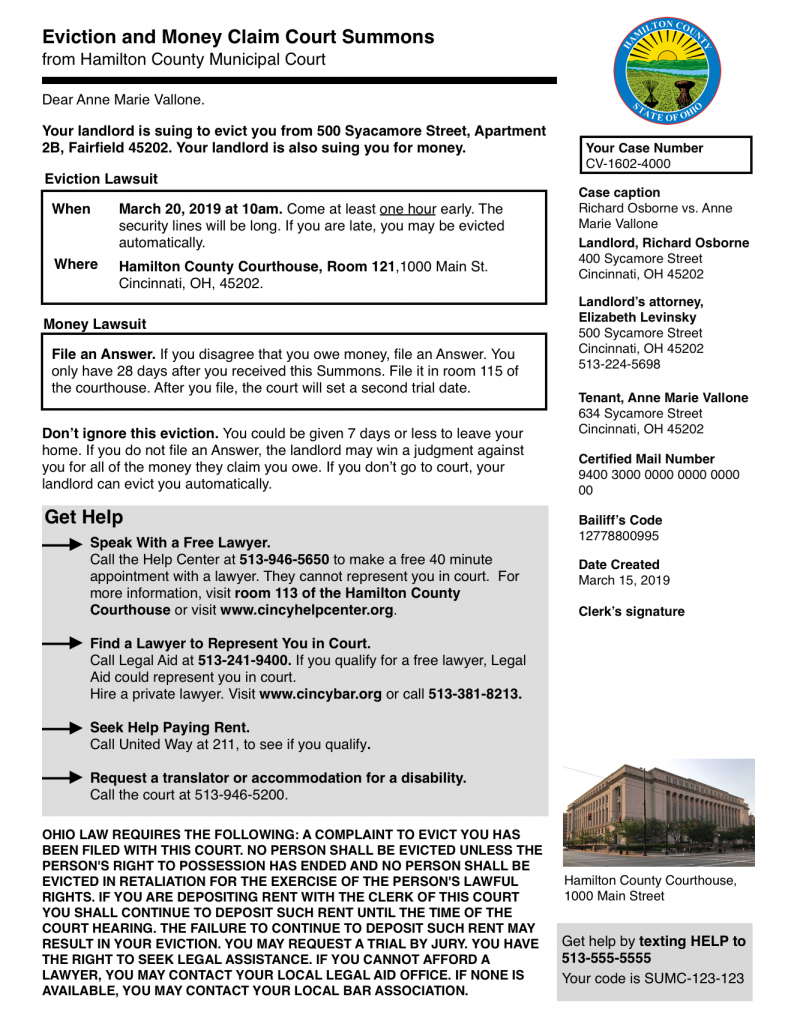
Eviction Summons Redesign in Cincinnati, OH
A team of court officials, self-help lawyers, and university researchers redesigned the court’s official Summons that tenants receive when they are evicted, to make it more accessible and actionable.
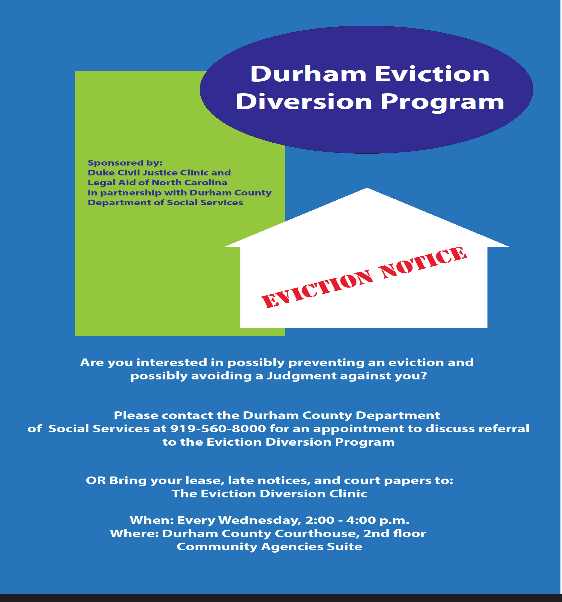
Eviction Diversion Program in Durham, NC
This program provides individuals facing eviction with free advice and support, ranging from emergency financial aid to legal council, with the goal of helping citizens avoid eviction judgements and decreasing the number of eviction filings and verdicts in Durham County.

Eviction Prevention in Syracuse, NY
The City of Syracuse Department of Neighborhood and Business Development invested in two eviction prevention programs focusing on early intervention services for tenants.
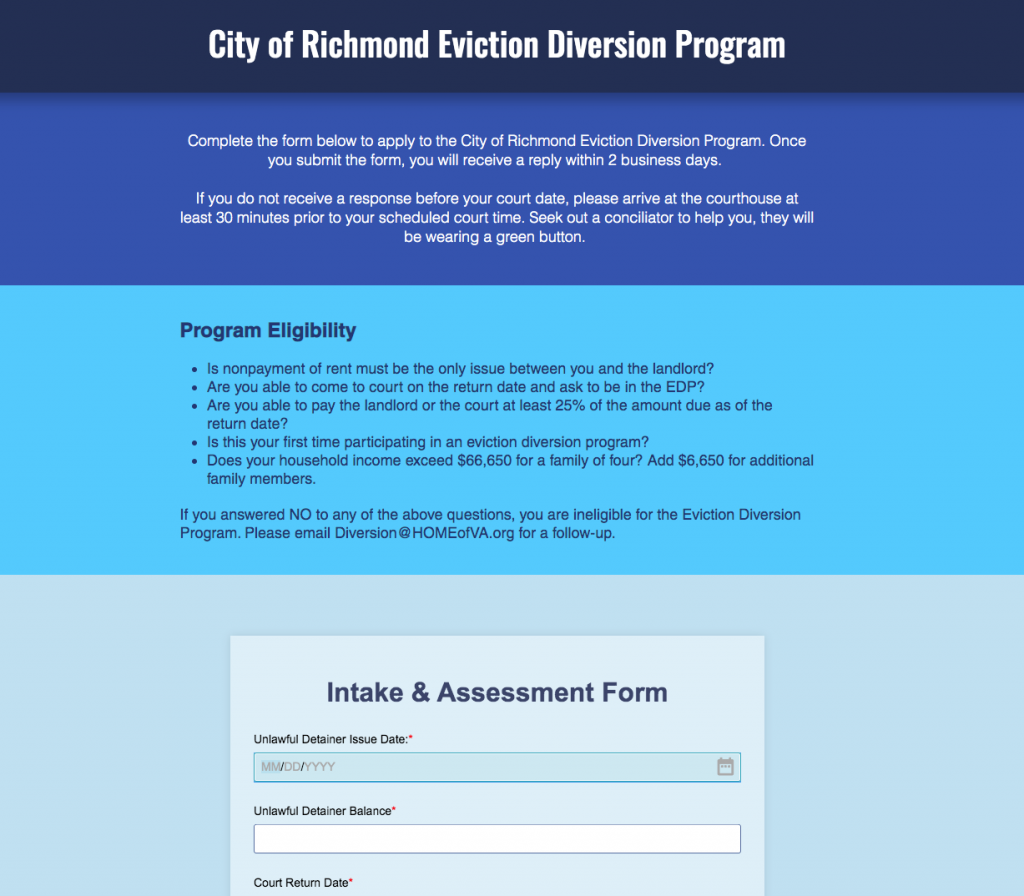
Eviction Diversion Program in Richmond, VA
The Eviction Diversion program provides tenants who have received an unlawful detainer (and satisfy other eligibility criteria) with the opportunity (if their landlord agrees) to enter a voluntary conciliation procedure and to receive financial literacy education and financial assistance, as opposed to going through the court eviction process.
Eviction Emergency Measures
These innovations focus on how to respond to special circumstances like a natural disaster, public health emergency, or financial crisis that has particular effects on renters — and that threaten to worsen the rates and outcomes of evictions.
